With the new, long-awaited season of Gintama released, the show is back to deliver high-quality entertainment.
The Gintama universe has an extremely diverse character set. From ninjas with hemorrhoids, from a police force with a sadist captain and a gorilla-like chief, from rebellious leaders who have weird taste in pets, we take a closer look at one particular character.
The MADAO.
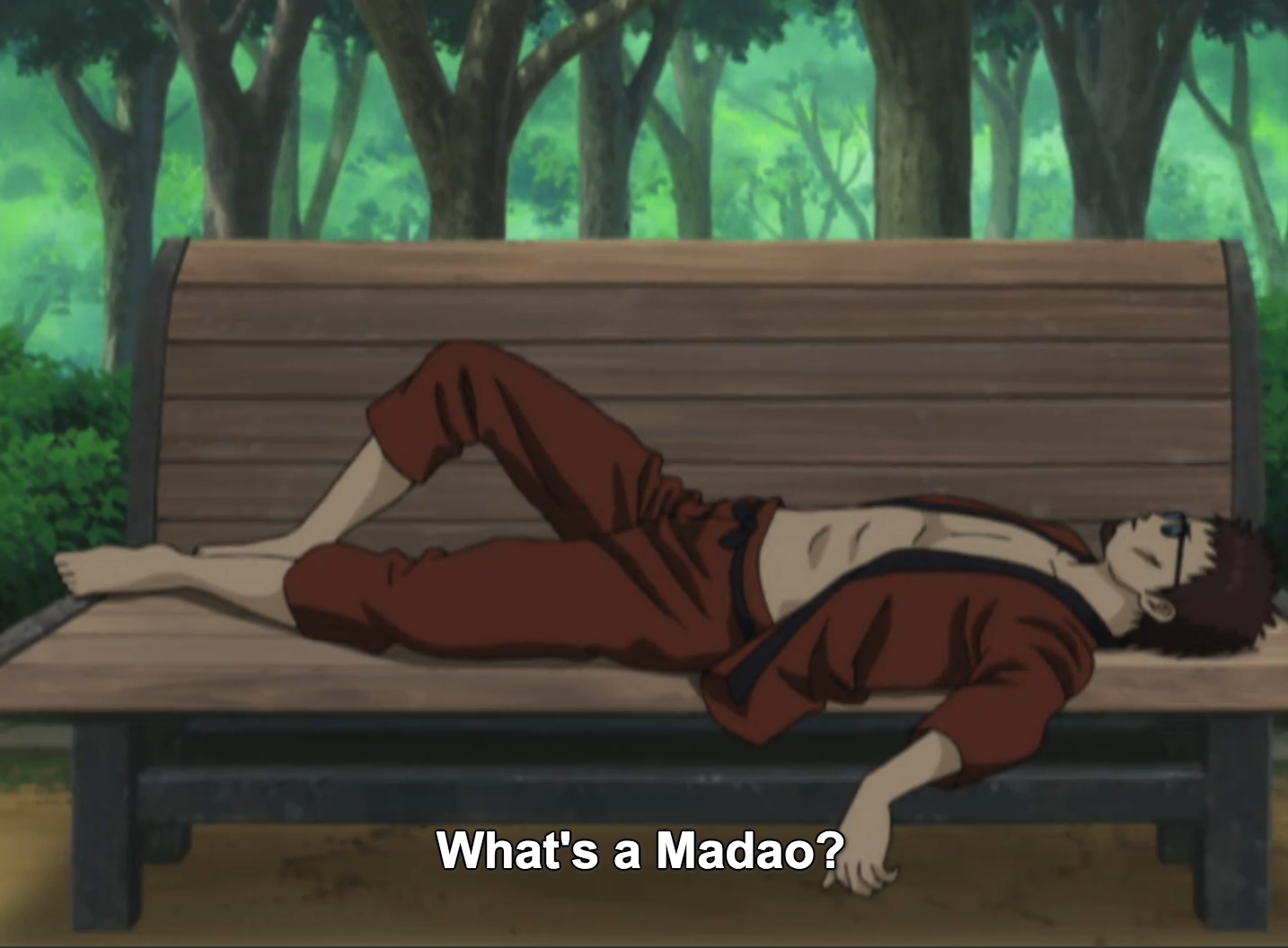
MADAO is an acronym of many meanings, describing a tragic character who is hopeless at life. A homeless, clumsy, broke bum who wastes their day drinking and doing absolutely nothing. No matter what they do, they can?t escape their misery. Here are some phrases that the acronym stands for:
- Middle Aged Dumb Ass Oldies
- MAtomo ni DAkaretakunai Otoko (men no one wants to date)
- MAjide DAssai Oyaji: (the really uncool old man)
- MAssugu ikite no DAinashi na jinsei na Ojisan(old man who lives as he wants, but accomplishes nothing)
In episode 188, a kid with a unique hairstyle made an observation journal about MADAO, describing him as:
?Madao is the master of the park. A creature with a beard and sunglasses. It sits in the park all day without work.?
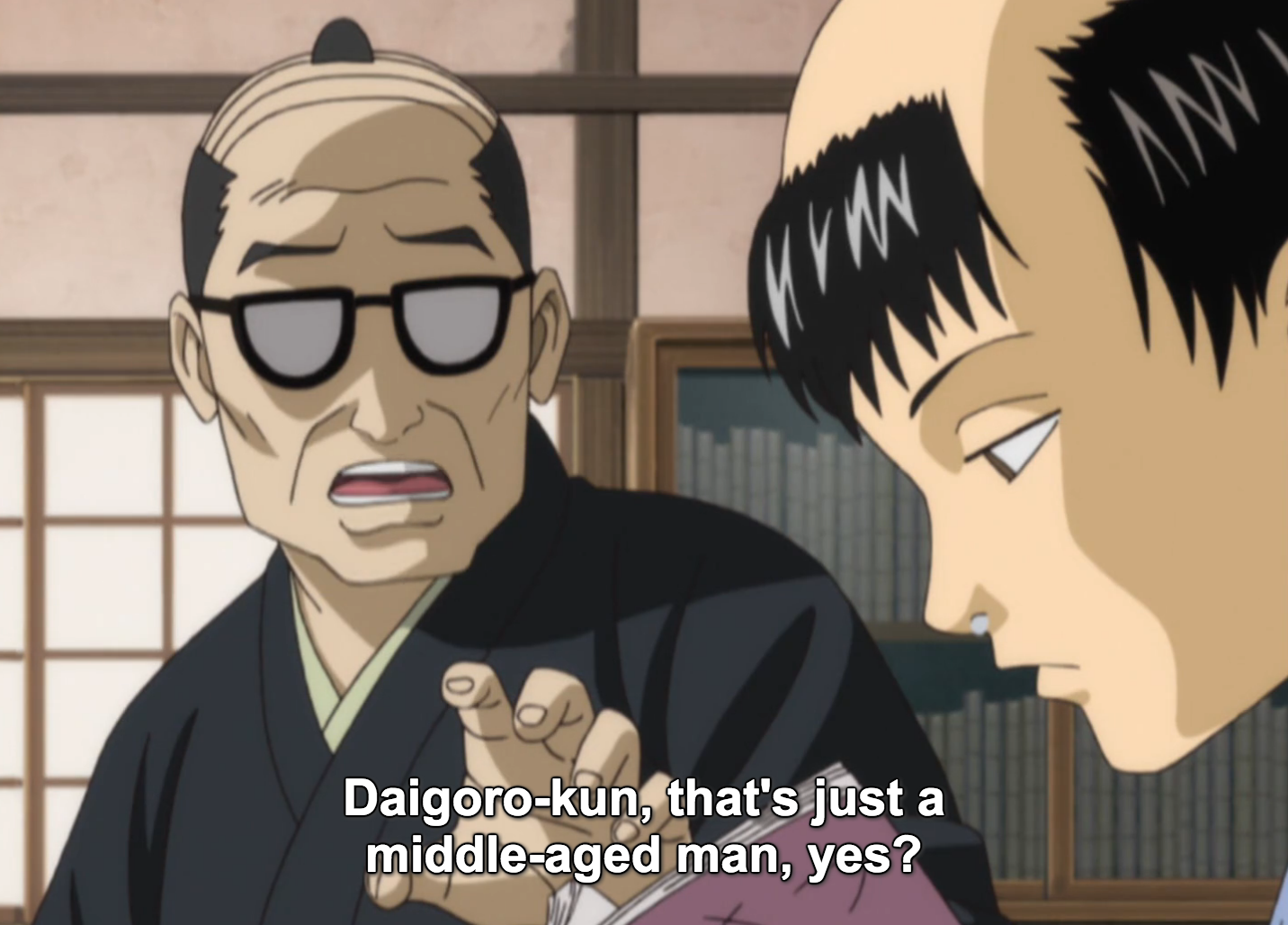 LOL
LOL
Is there hope for MADAO? When will MADAO finally get a stable job? Will MADAO ever be happy? Why is MADAO like this? The answer lies in the philosophy of MADAO. Specifically, we analyze the philosophy of Hasegawa Taizou.
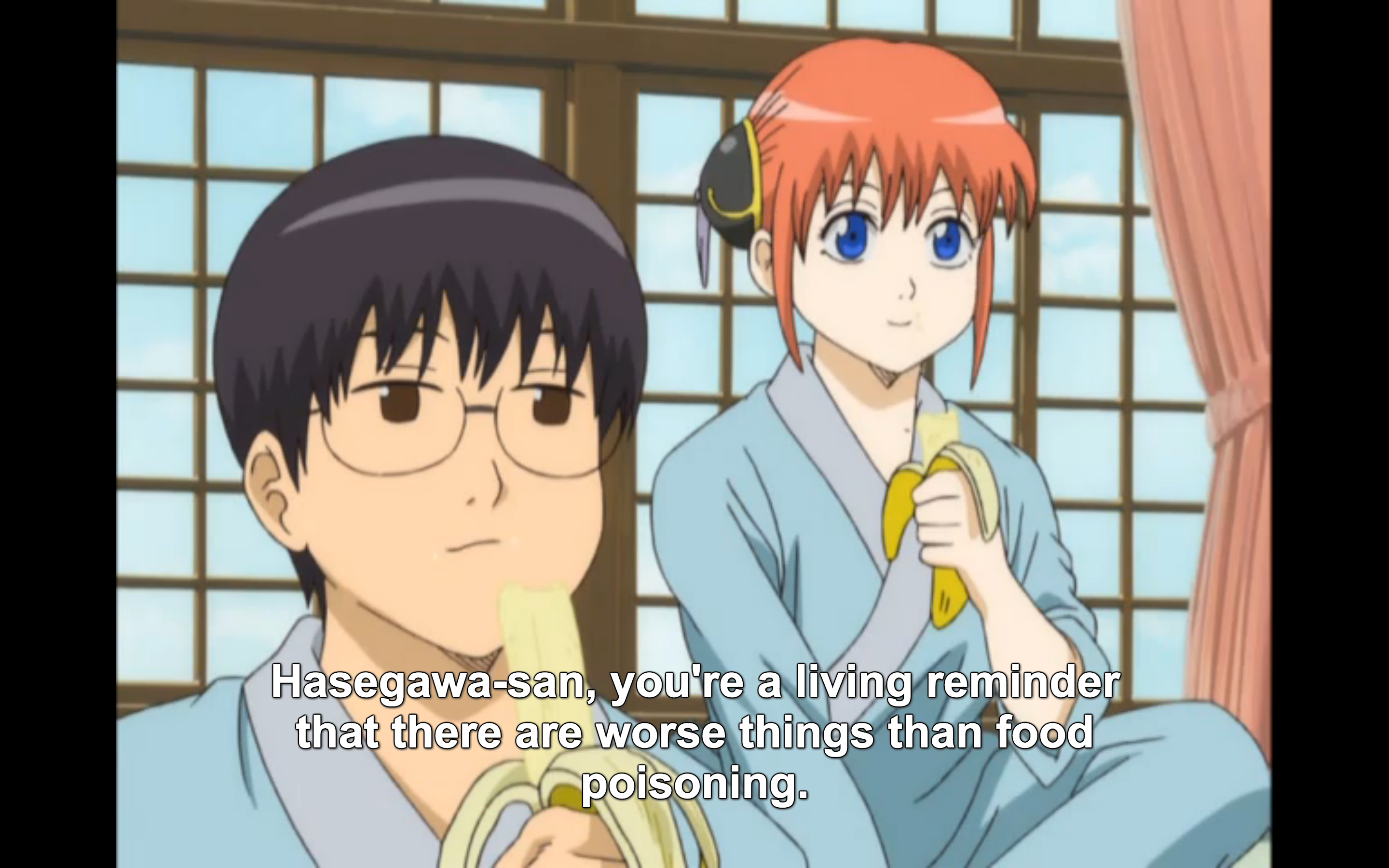
In essence, MADAO is an altruist and an existentialist.
1. MADAO is an altruist.
Altruism is defined as ?the belief in or practice of disinterested and selfless concern for the well-being of others?.
Let?s examine how Hasegawa behaves like an altruist.
In episode 95, Hasegawa goes to jail for accidentally performing a Kinniku Buster on a lady.
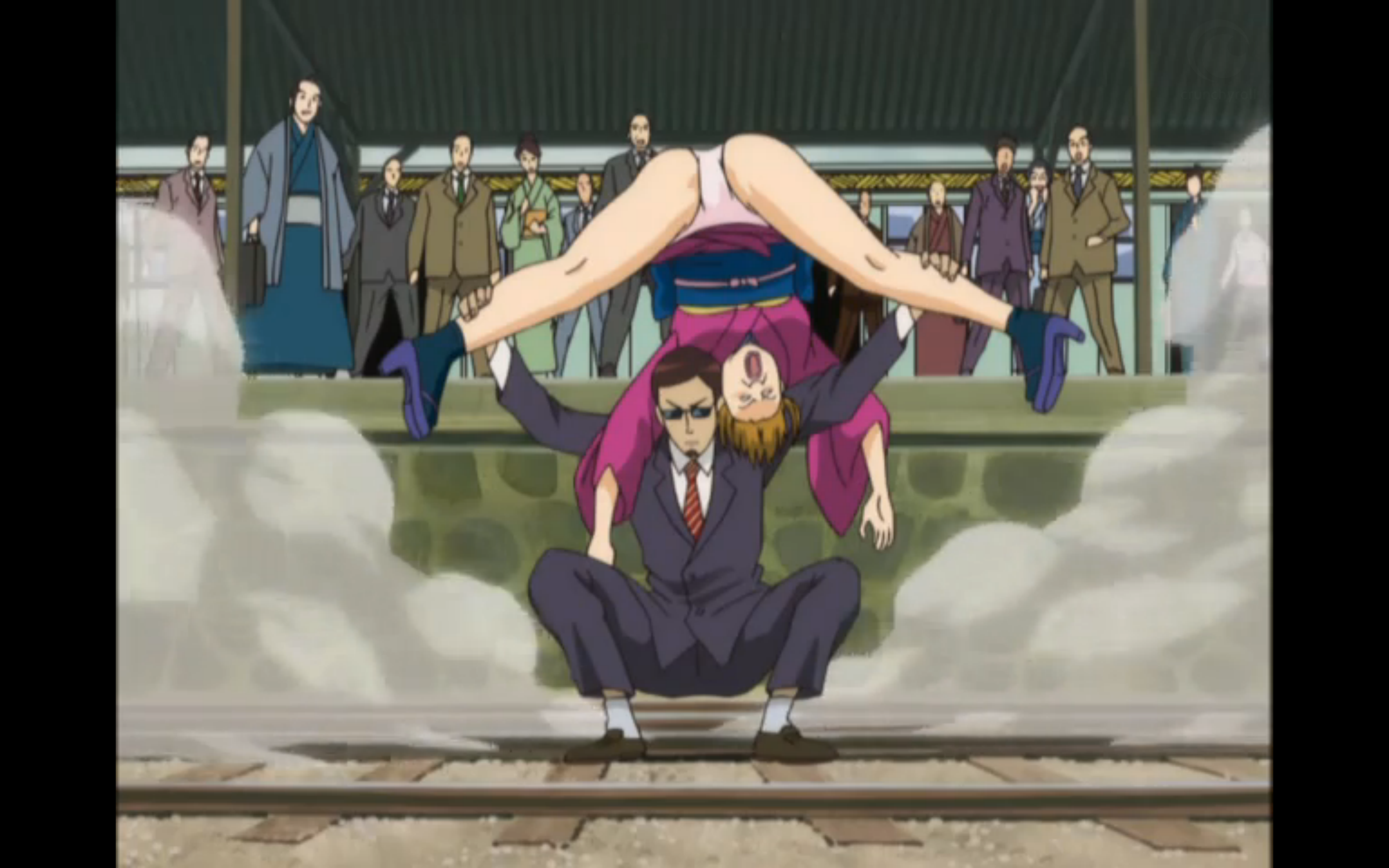 Yes, it was an accident.
Yes, it was an accident.
During his trial, he admits that the prosecutor secretly offered him to sign divorce papers with his separated wife so that the prosecutor can have a relationship with Hasegawa?s wife, in exchange for letting Hasegawa win the trial and not be sentenced to prison. It was a humiliating fact for him to admit, but he did it to save his wife.
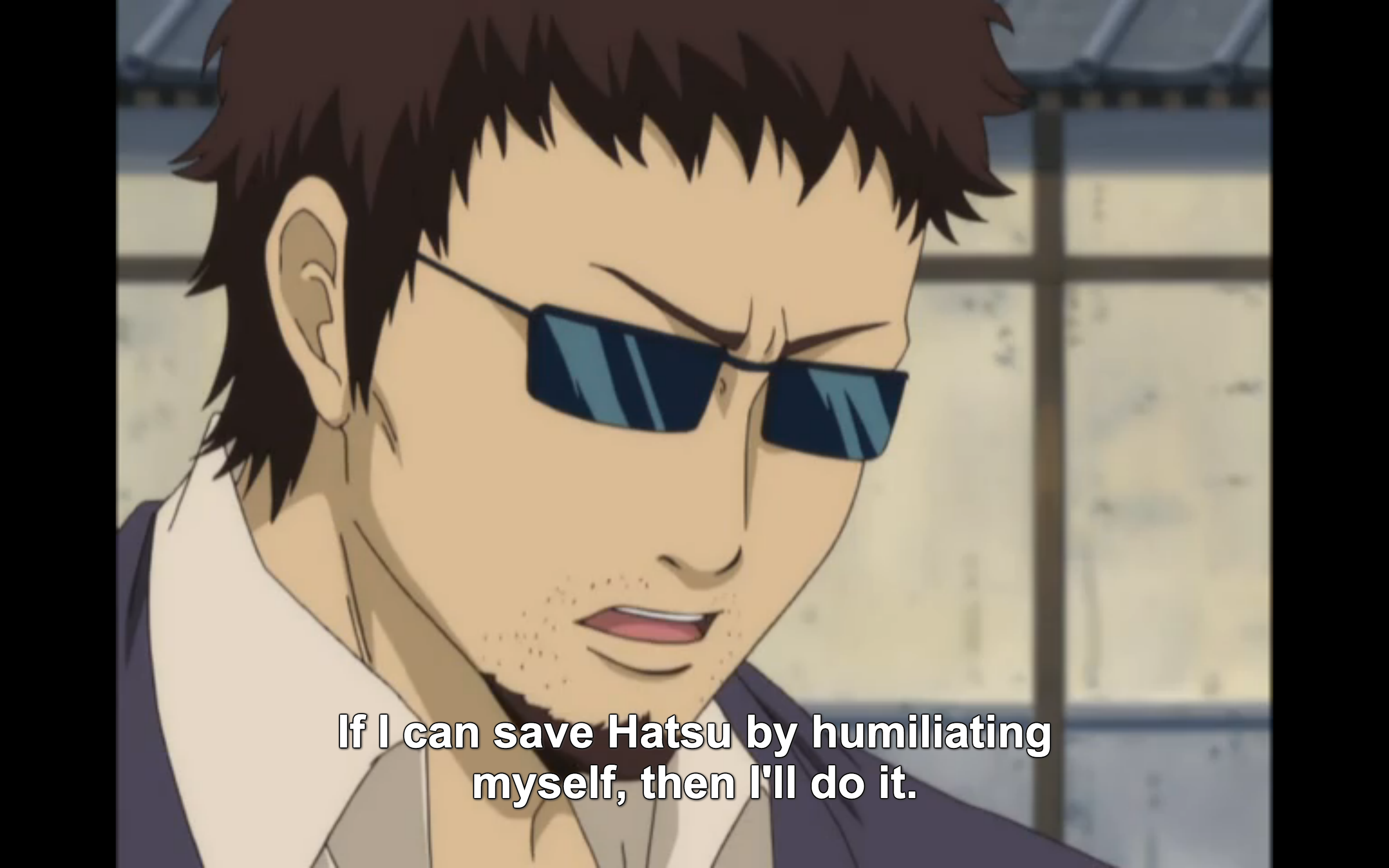
In episode 248, ?Madaodog Madaonaire?, a parody episode of Slumdog Millionaire, Hasegawa participates in a game show (a parody of Who Wants to be a Millionare?).
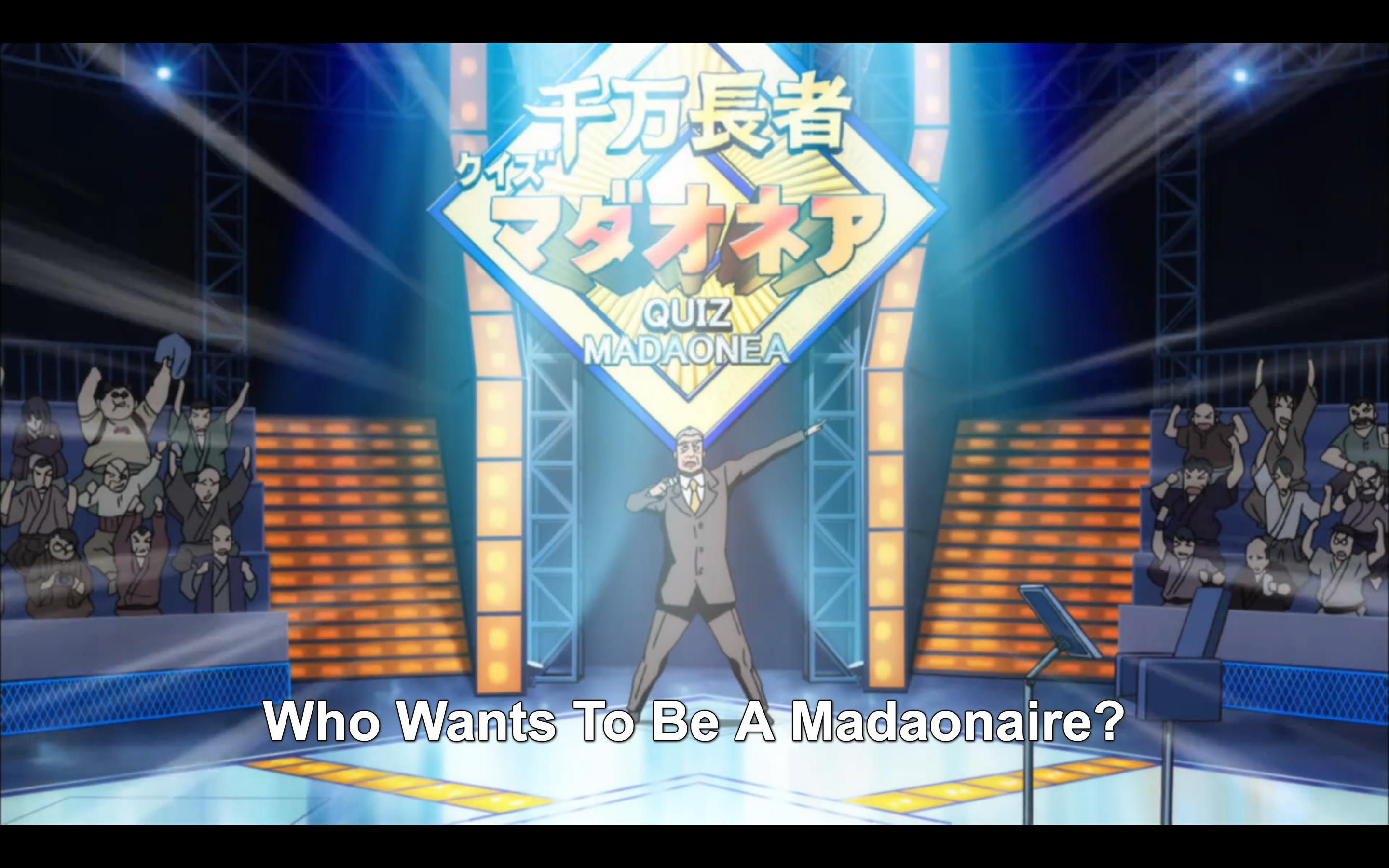
Hasegawa looks back on past events, events that involve a school girl he?s befriended. Her name is Sakurajima Chiharu.
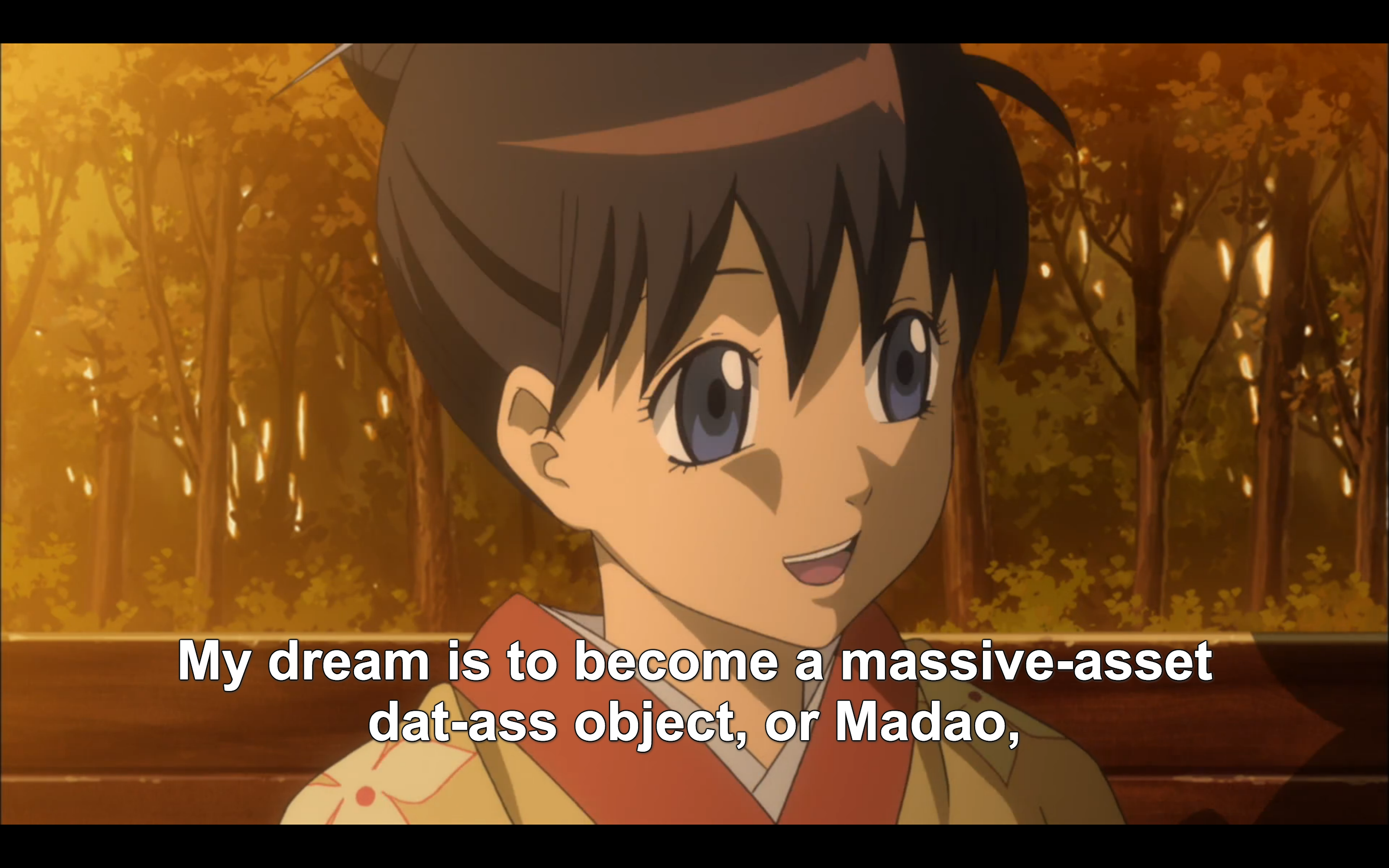
Chiharu talks about how she wants to be a contestant in Who Wants to be a Madaonaire?, so that she can pay off her debts and maybe her father will come back if he sees her on TV. A few memories later, her mother becomes ill and she becomes homeless due to overwhelming debt. However, Hasegawa takes care of her.
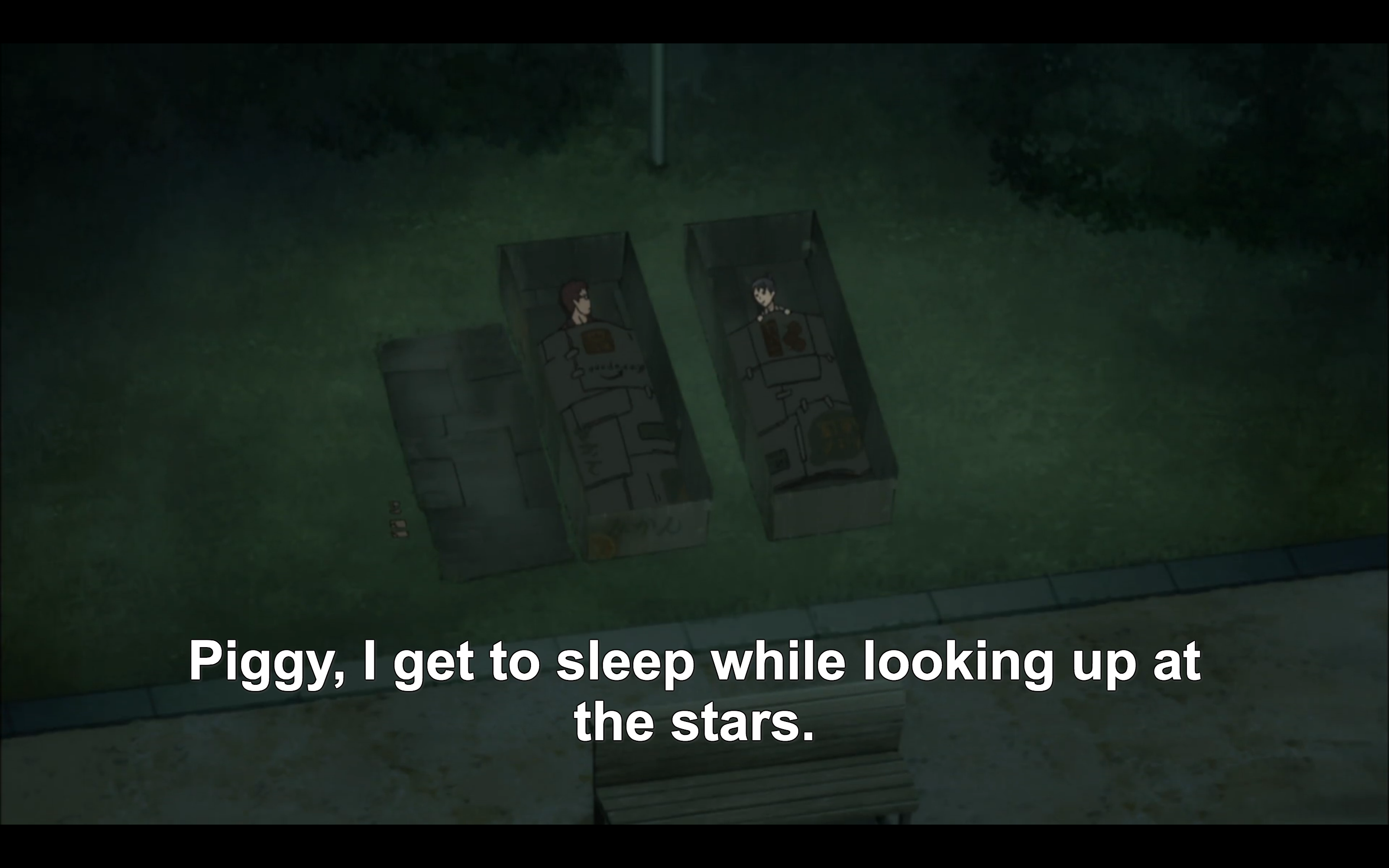 Sleeping in cardboard boxes at the park
Sleeping in cardboard boxes at the park
They get closer. Eventually, Hasegawa becomes a father figure for Chiharu.
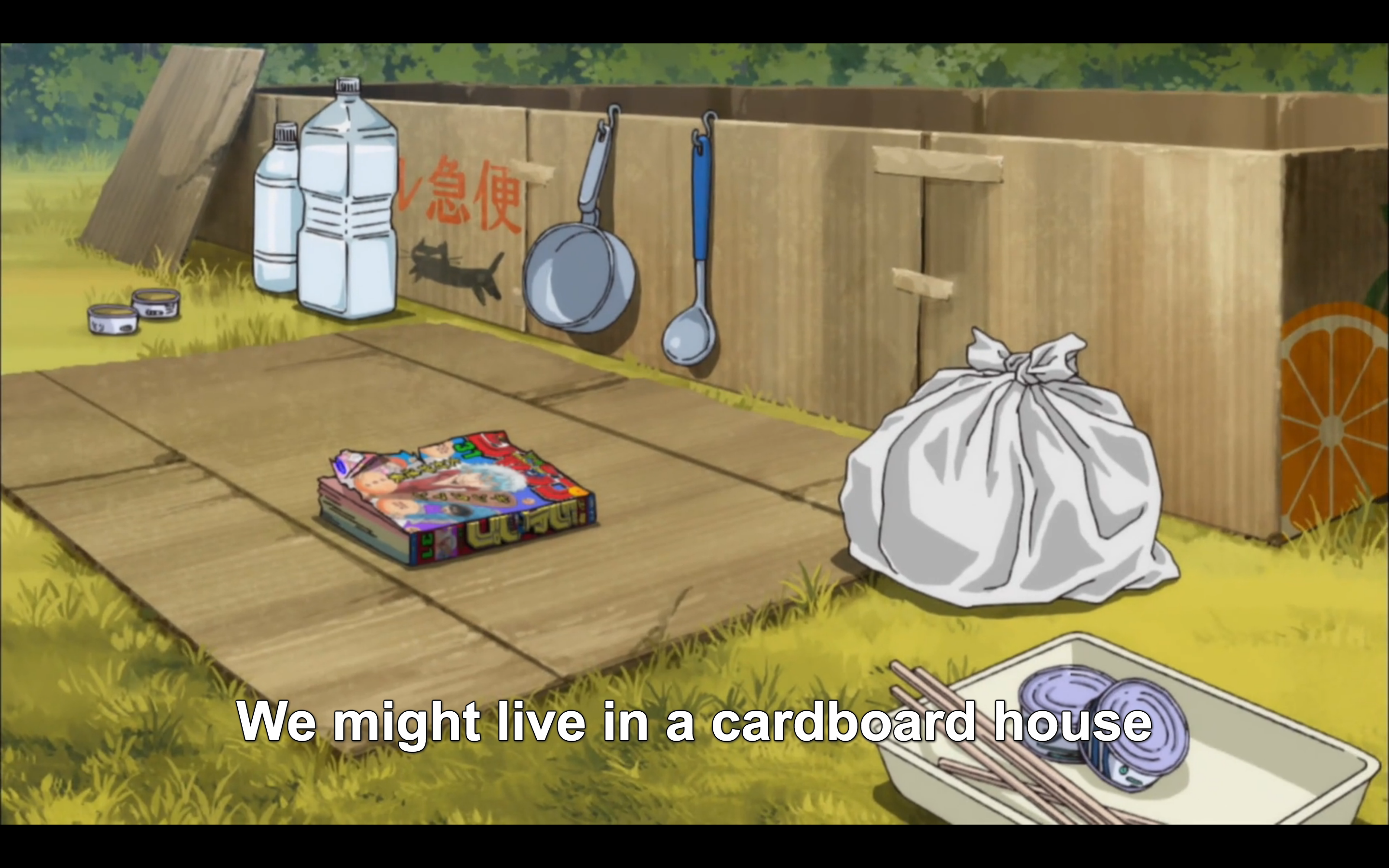
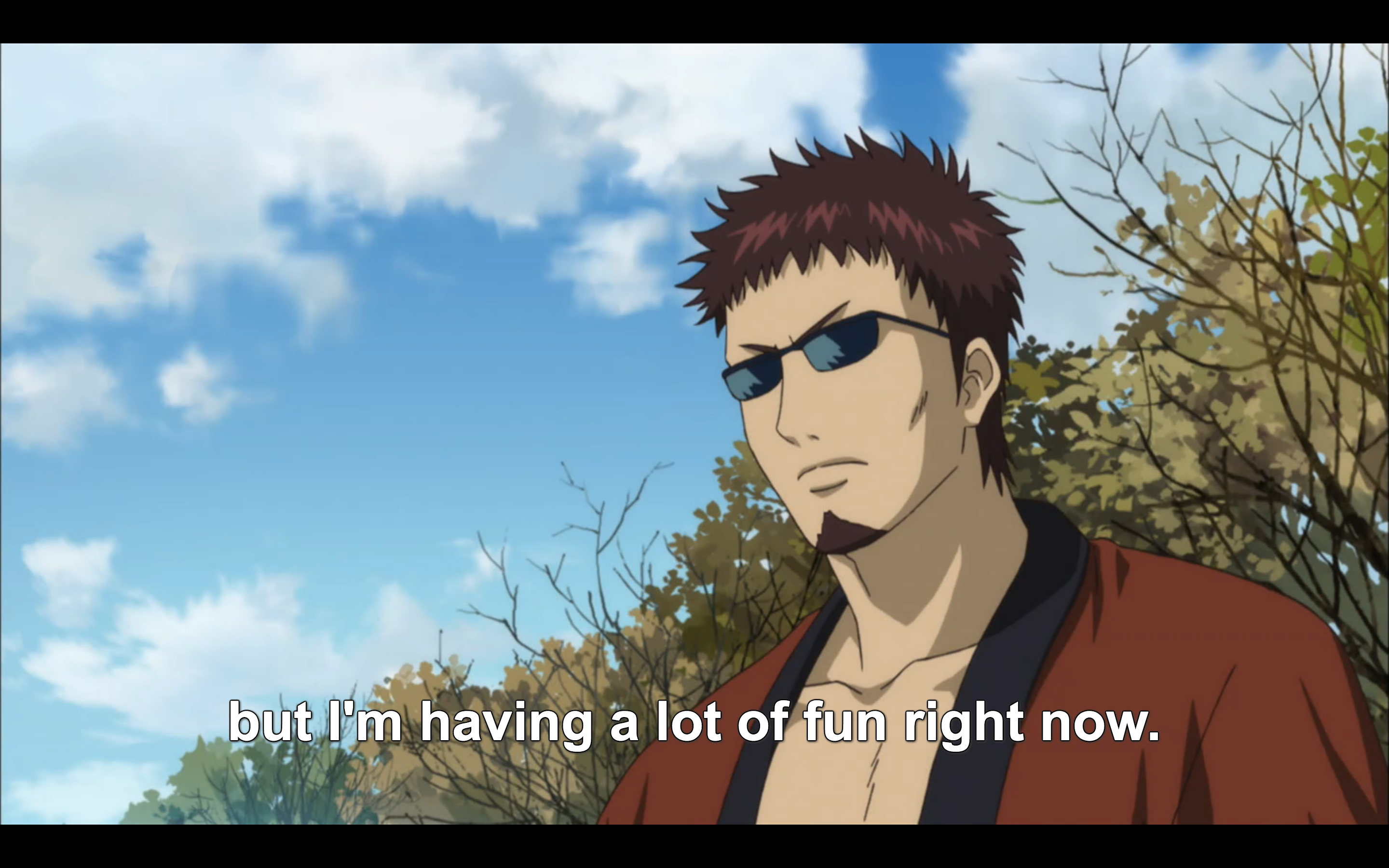
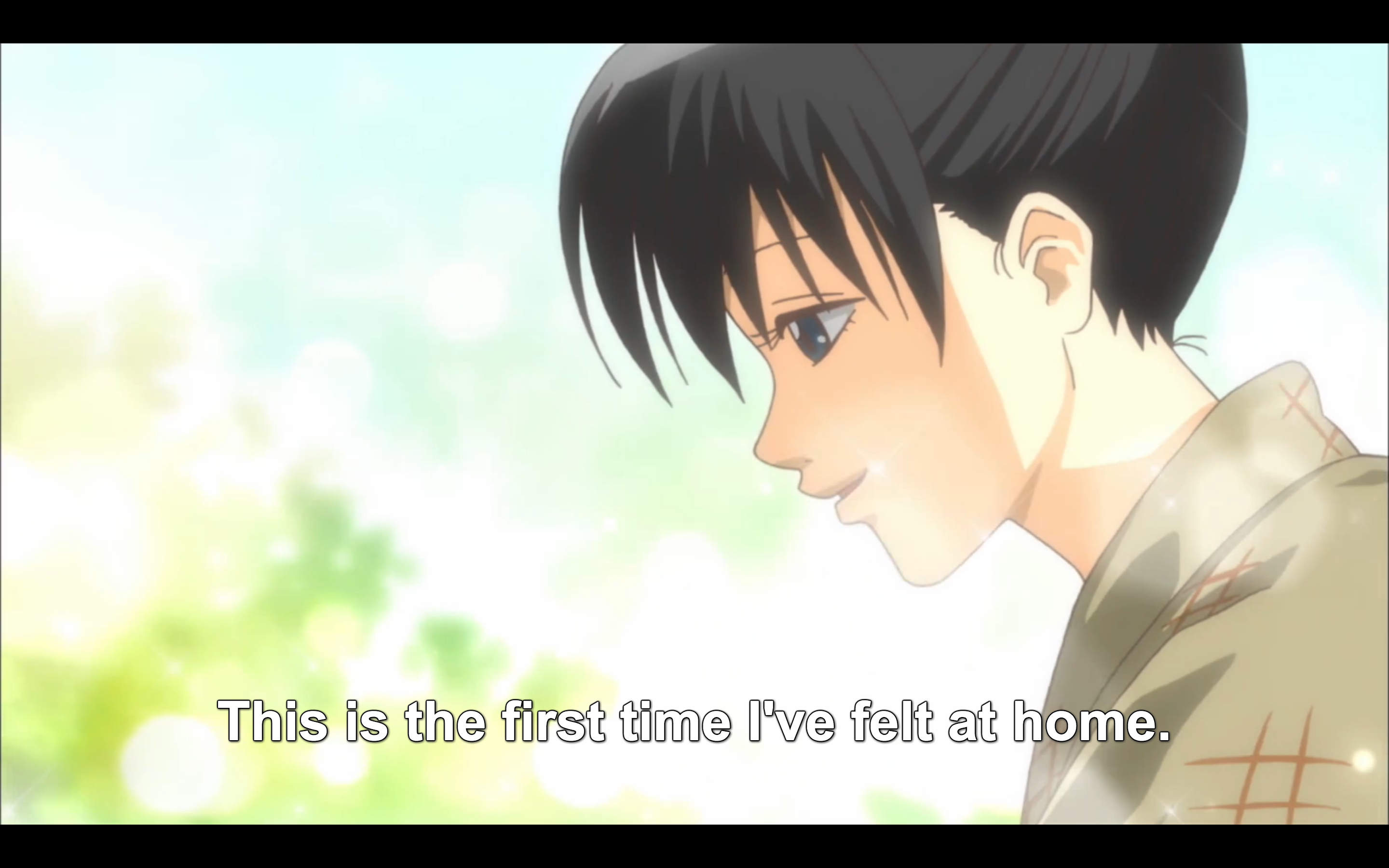 Why am I crying right now?
Why am I crying right now?
Later on, her father returns, and the debt collectors come asking about the money they owe. Hasegawa takes responsibility for the debt.
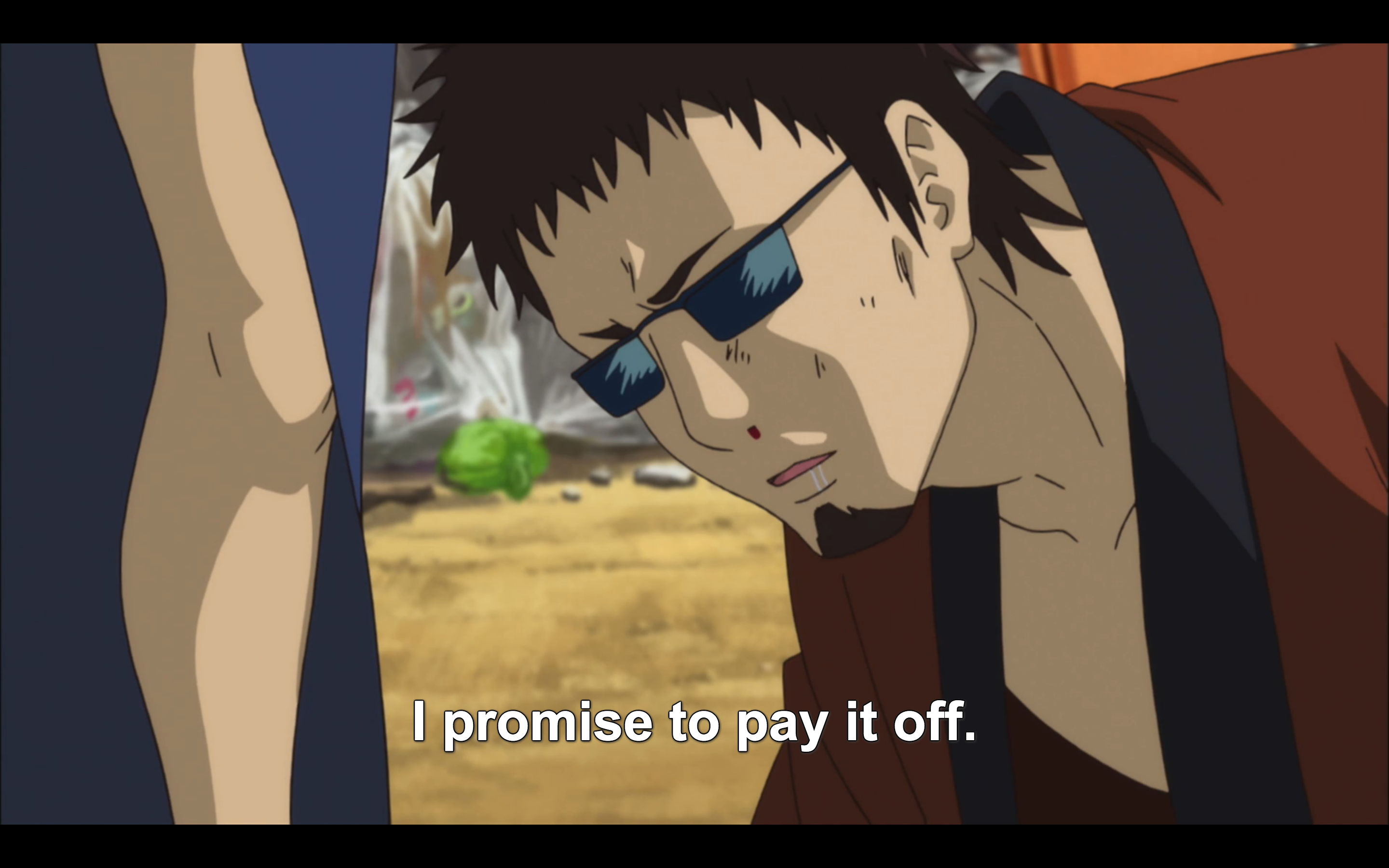
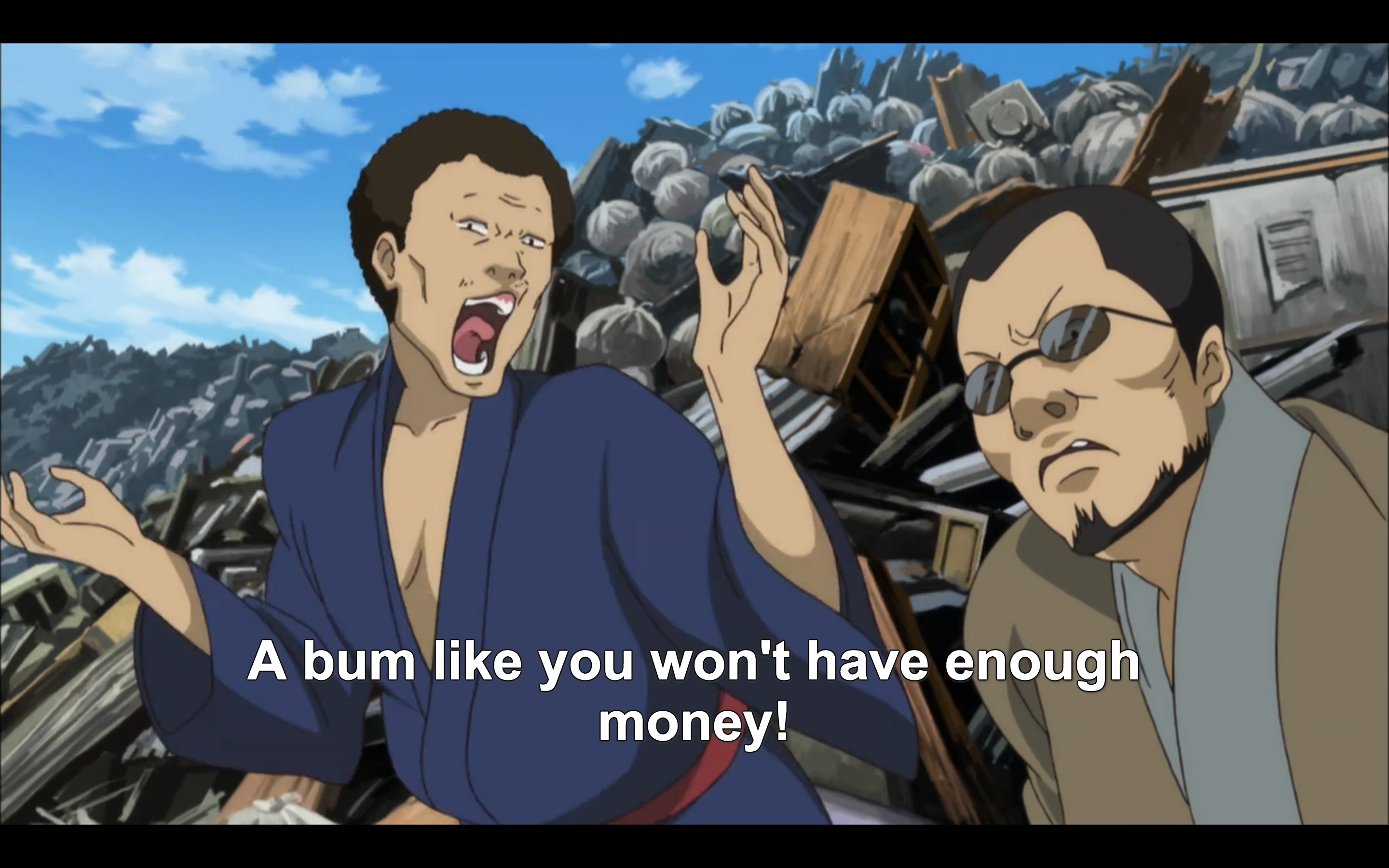
Which is why he entered the game show. To earn money to pay off Chiharu?s family?s debt. He took responsibility for someone else?s problem. He suffered a beating from the debt collectors and humiliation from looking back on pathetic memories so that he could bring peace to Chiharu?s life.
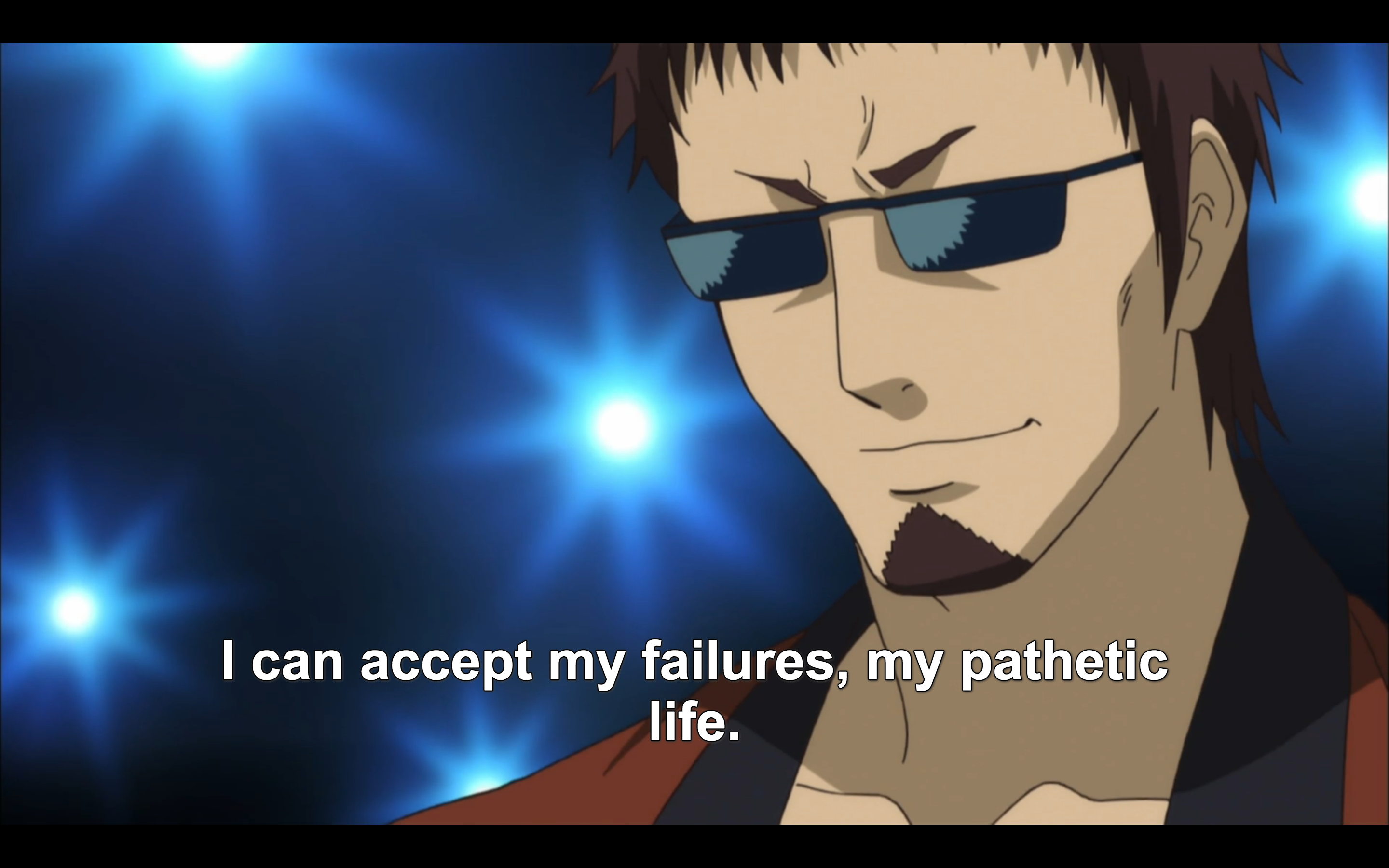
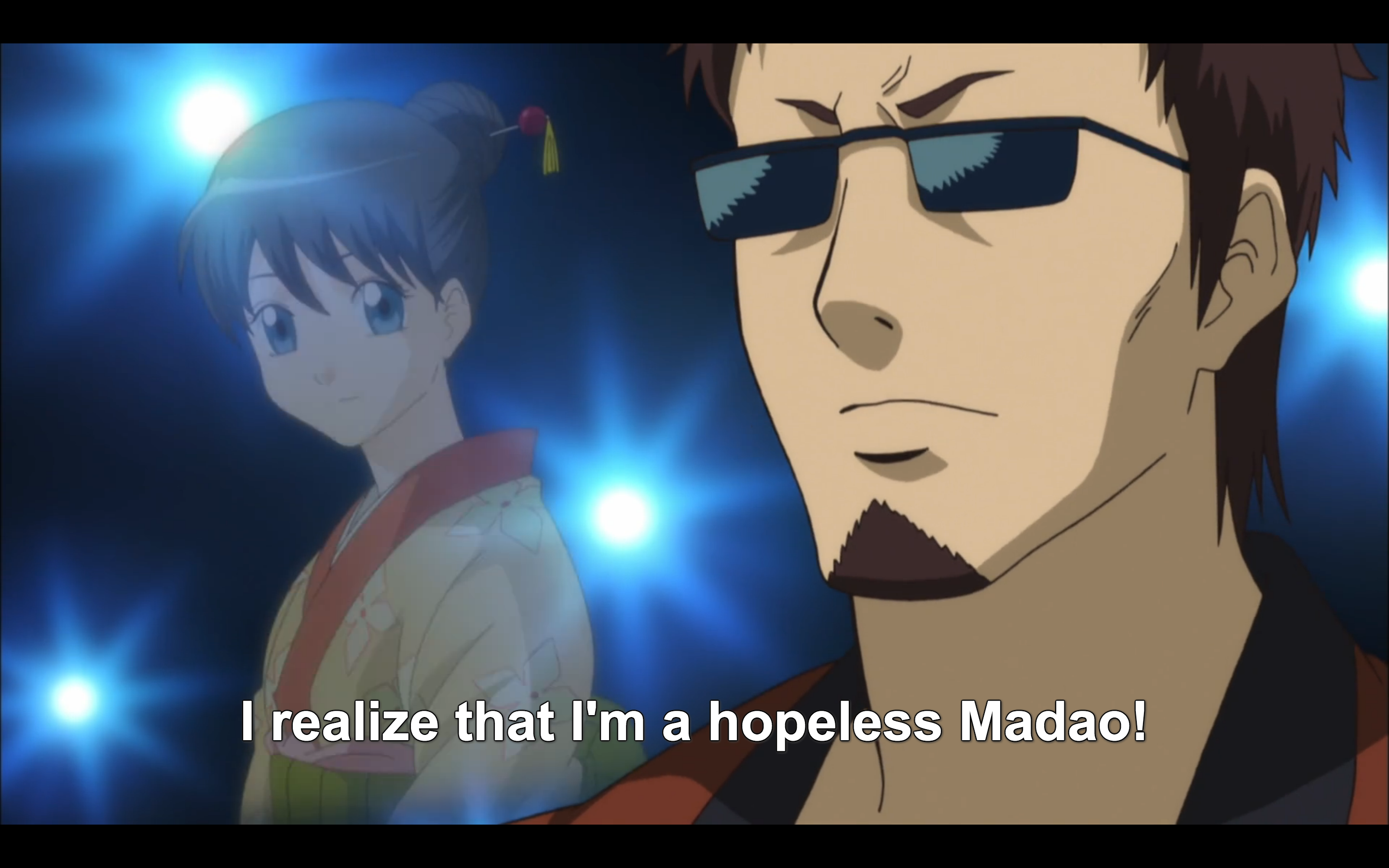
Now, let?s talk about episode 188, the Observation Journal episode. It?s the episode where this kid, Daigoro, writes an observation journal on Hasegawa and is presenting it in class.
He talks about taking Hasegawa in as a family member, attempting to take care of him.
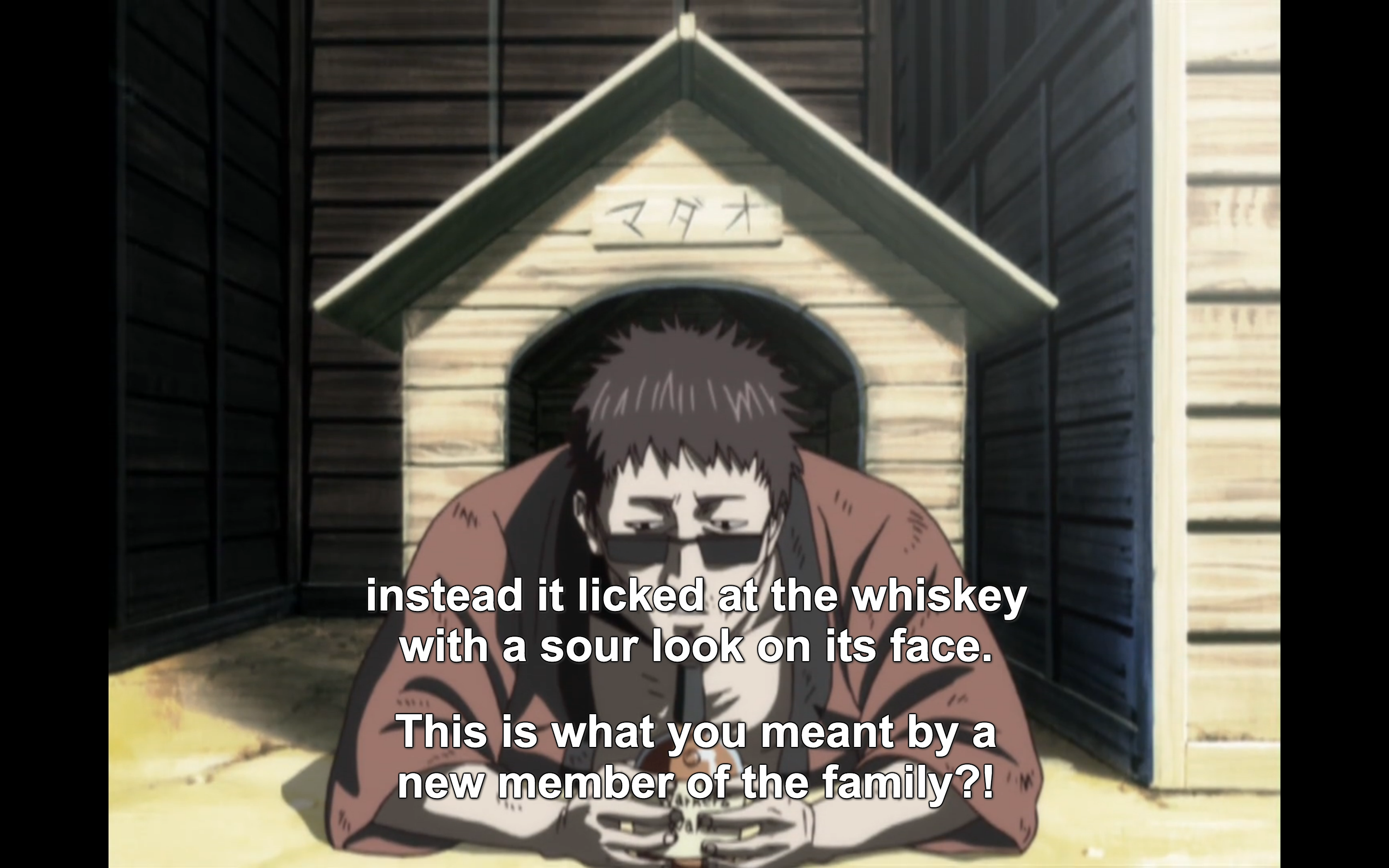 Daigoro takes MADAO in as the family dog.
Daigoro takes MADAO in as the family dog.
In the journal, Daigoro reveals that he had a father that was also a MADAO, who walked out on the family, leaving Daigoro and his mom unhappy.
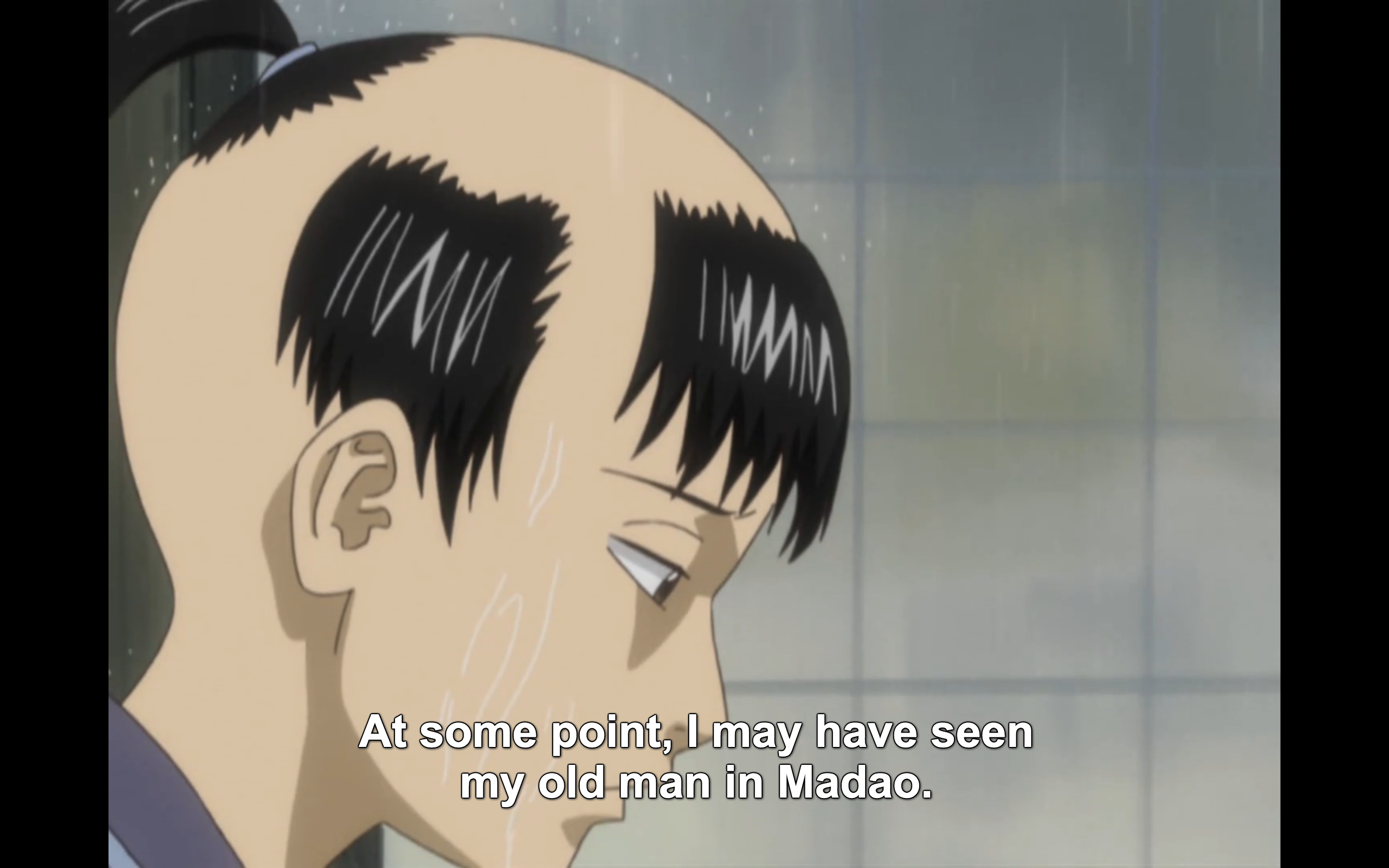
Eventually, Hasegawa became a closer part of Daigoro?s family, with Daigoro?s mom developing feelings for Hasegawa.
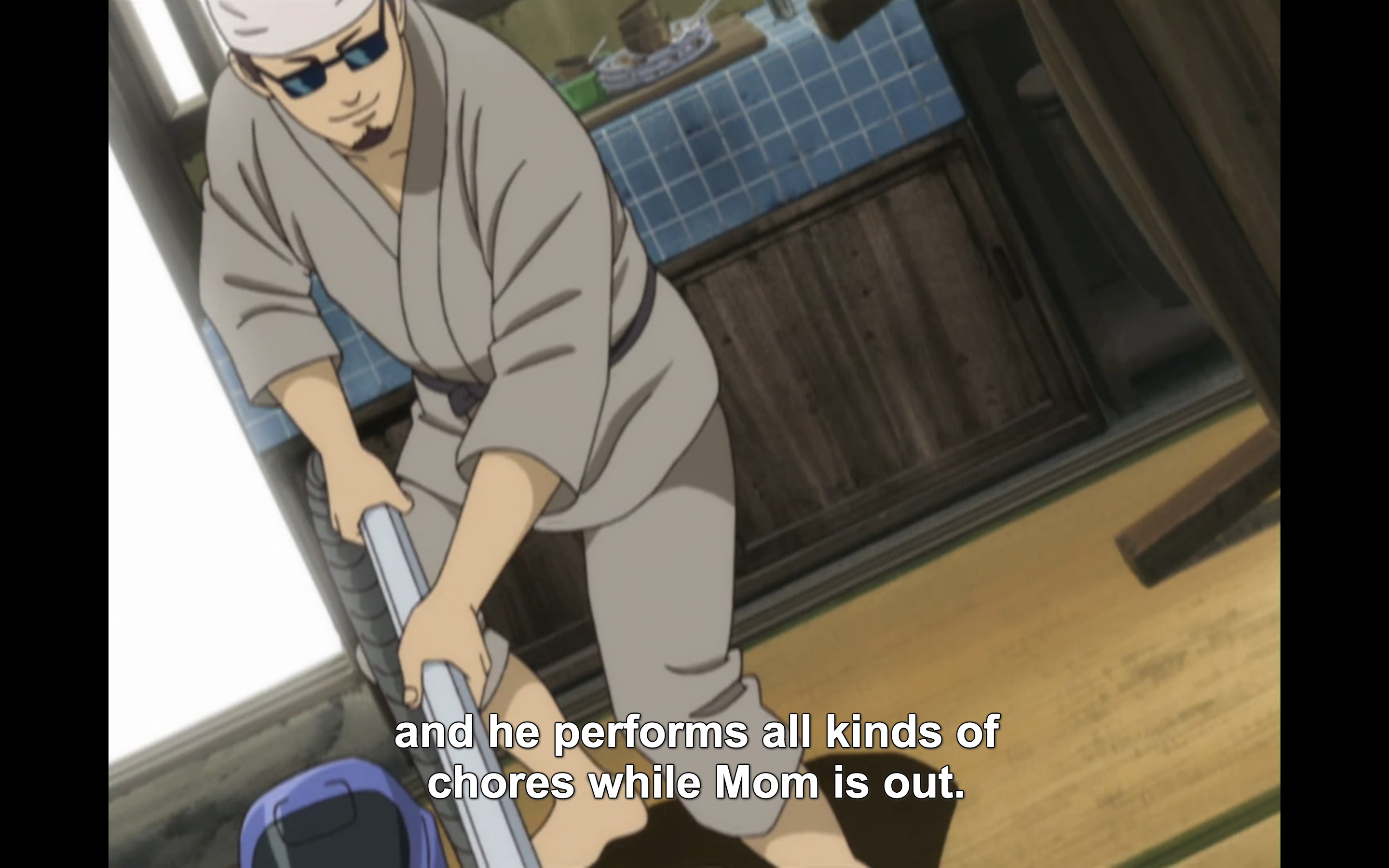
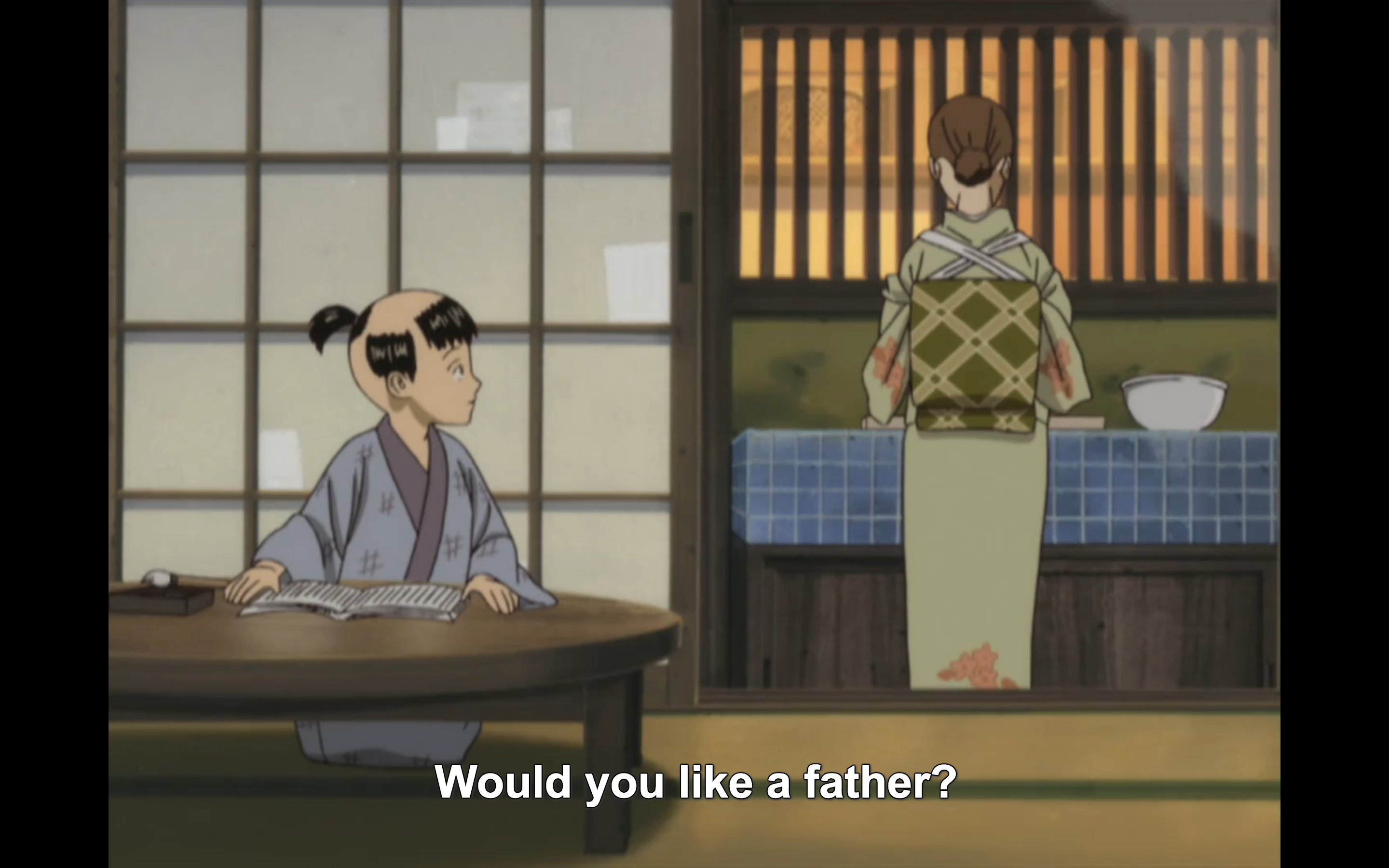
And eventually, Hasegawa finds a job opportunity.
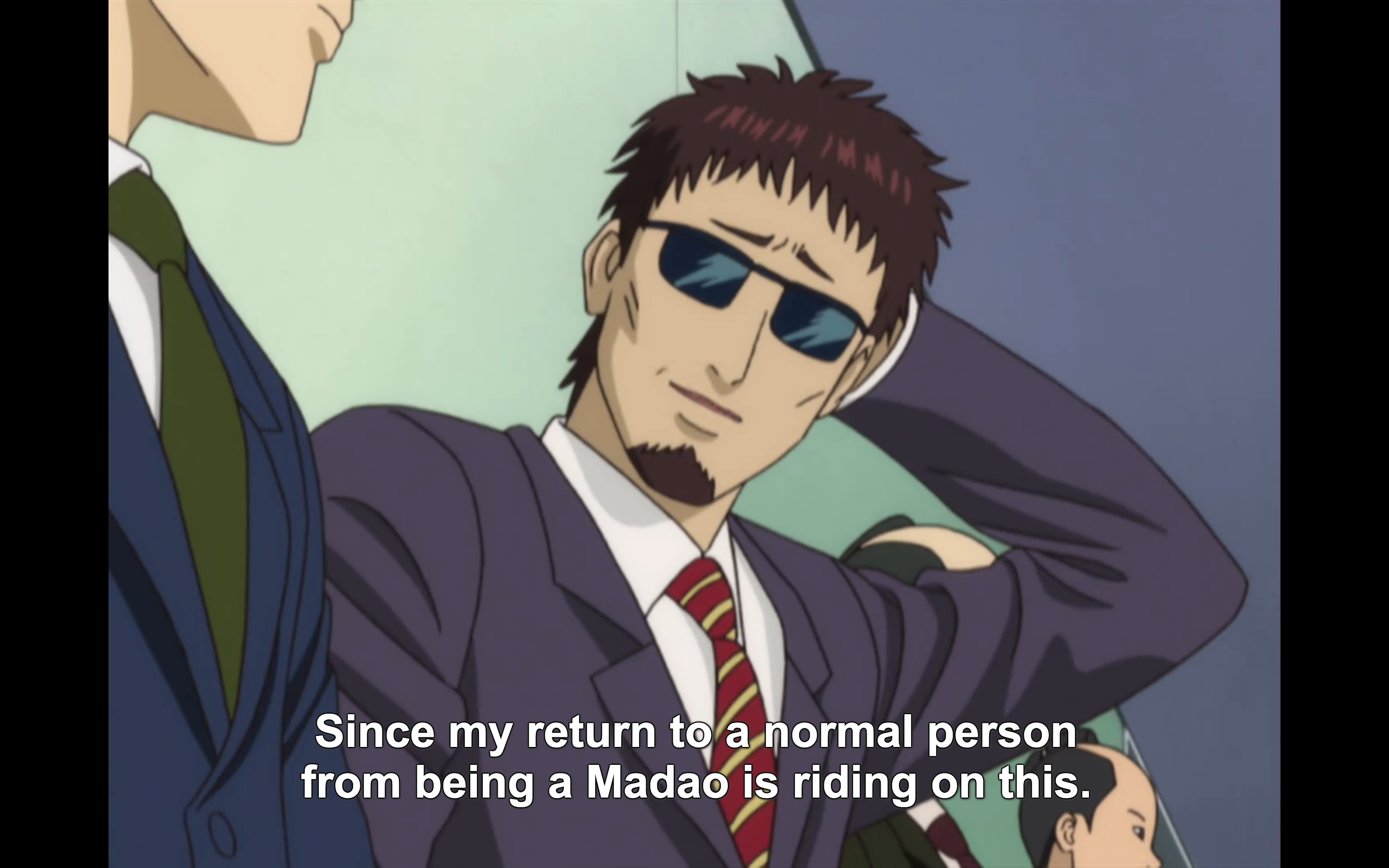
While he was waiting to be interviewed, he meets Daigoro?s father, who is also trying to get a job and not be a MADAO. The father talks about how he really wants to stop being a MADAO, and that his success with getting the job is going to determine whether he gets his family back or not.
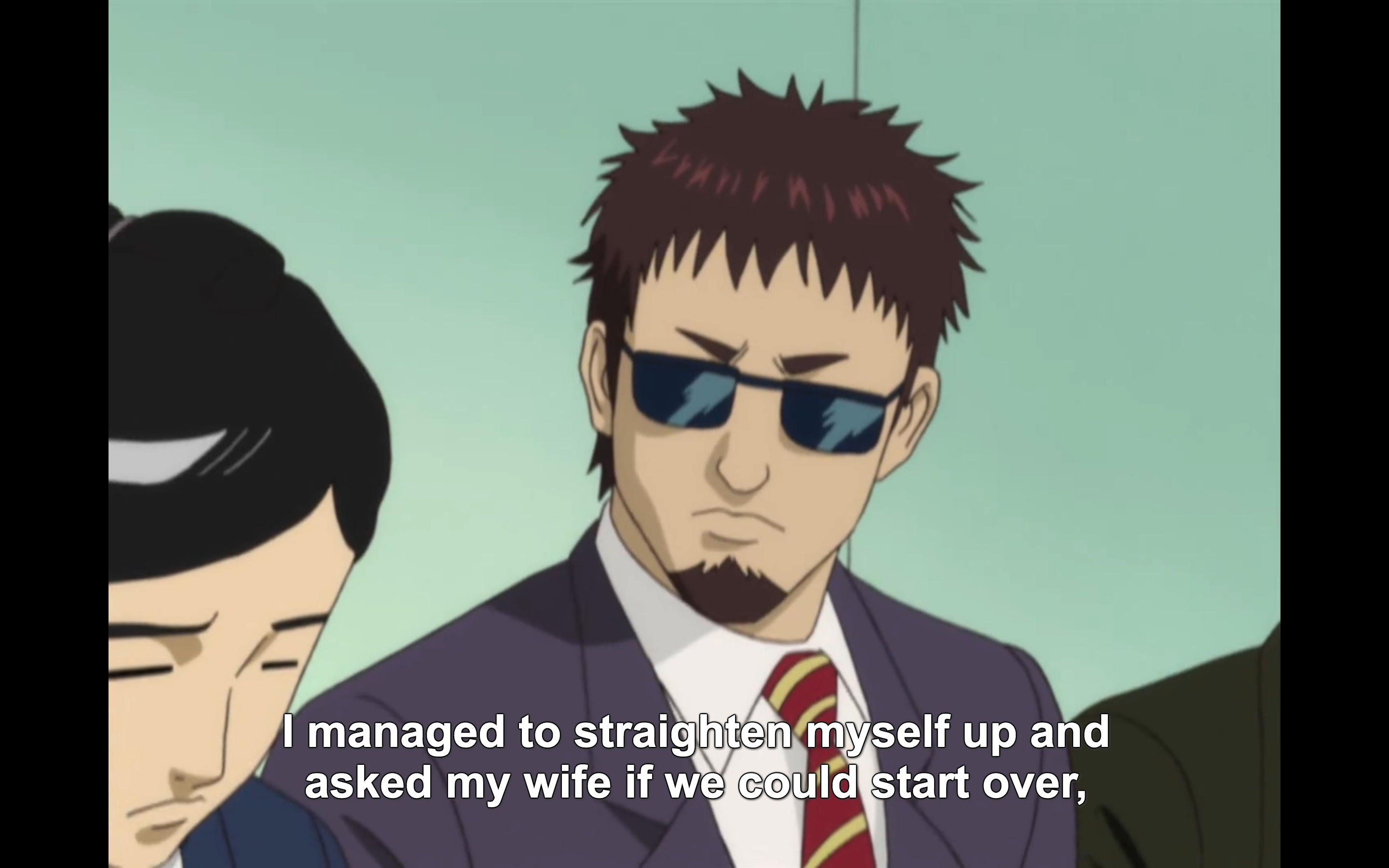
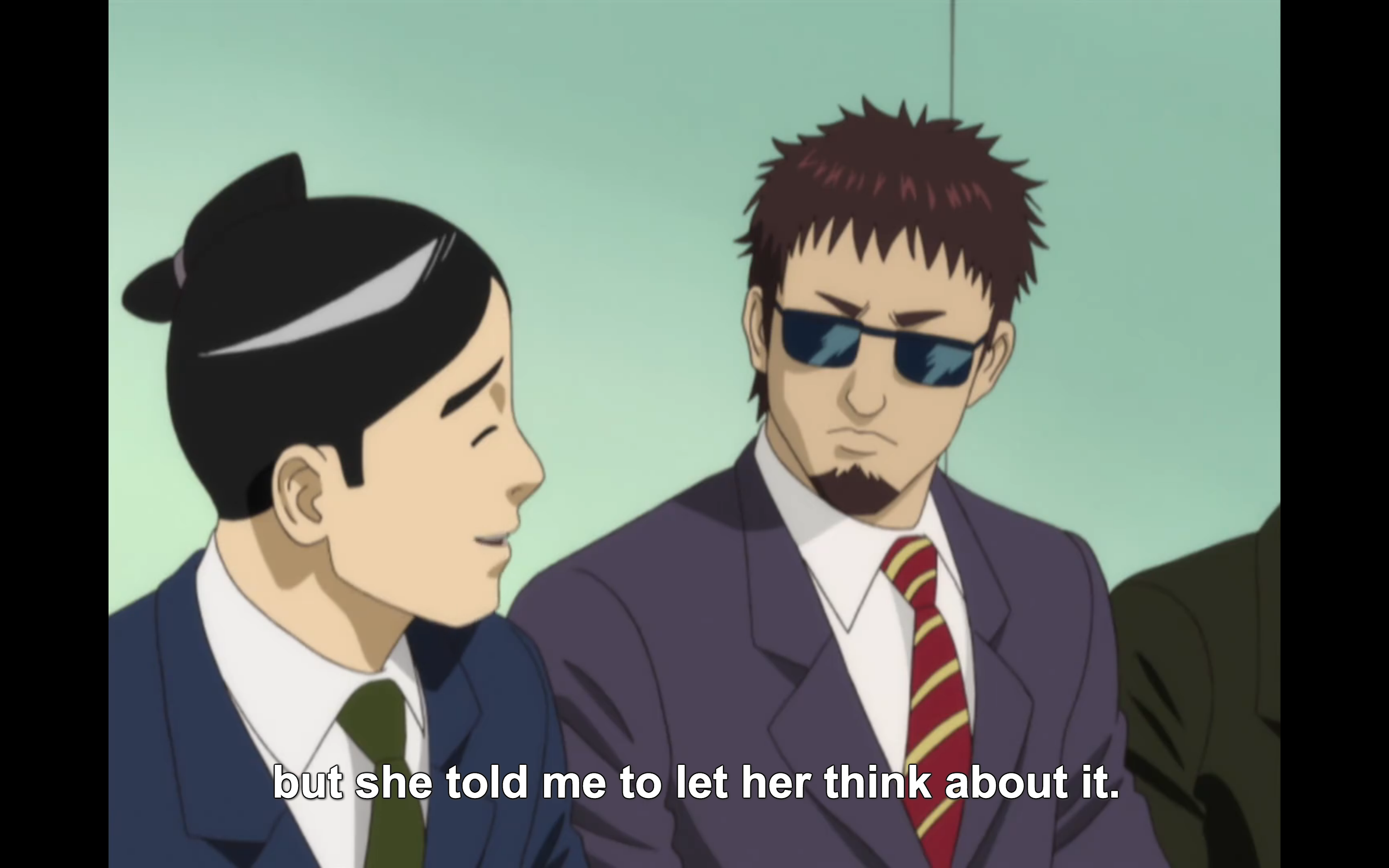
Unfortunately, there is only one position available.
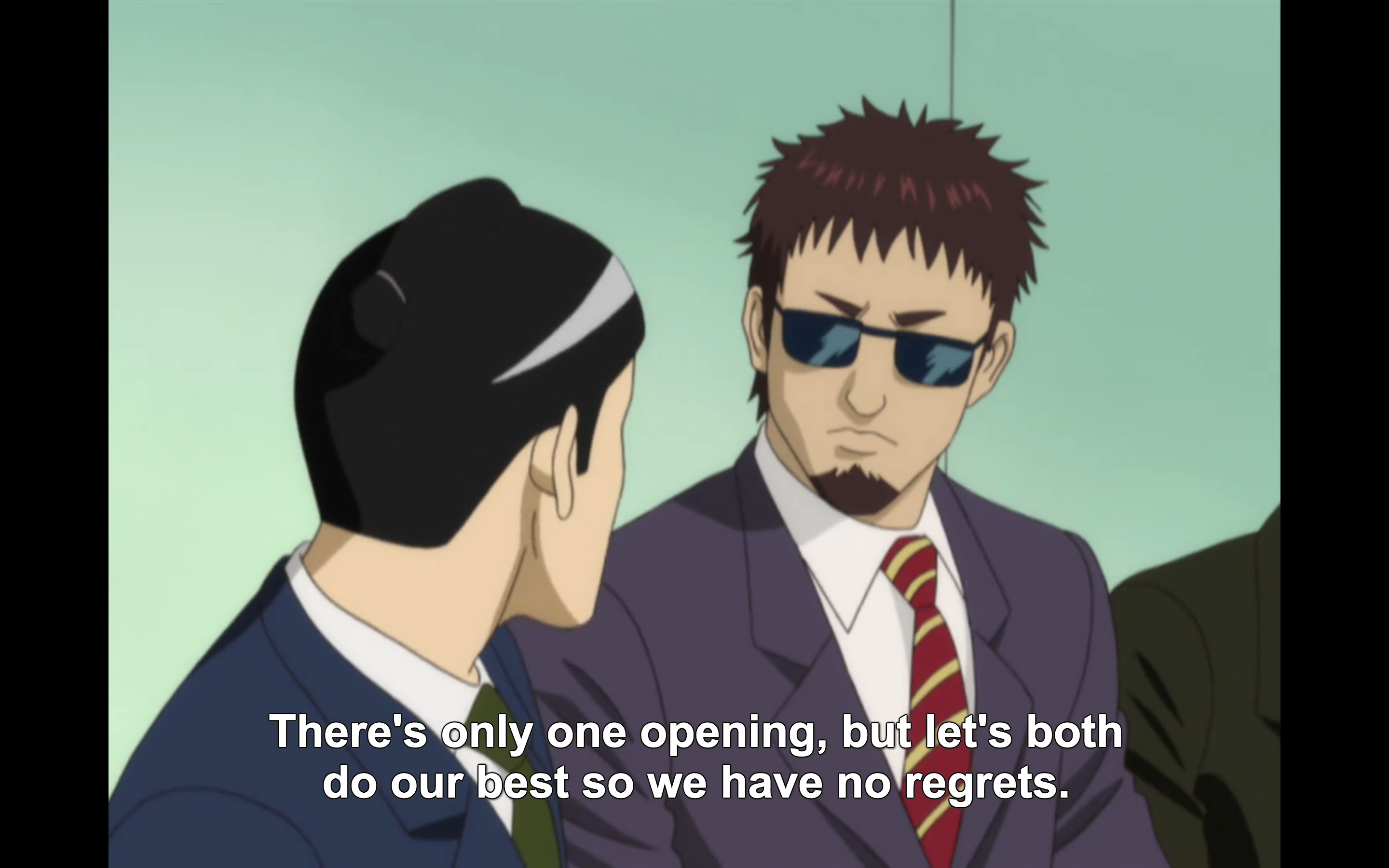
Hasegawa realizes that not getting the job won?t impact him as much as it will impact Daigoro?s father if Daigoro?s father doesn?t get the job. He purposely fails the interview process by causing a drunken ruckus, so that Daigoro?s father could get the job position and his family back. Hasegawa realizes that since Daigoro will have a father again, there is no place in the family for him. He disappears from the family and goes back to being a master of the park, creating space for Daigoro?s father to fit in.
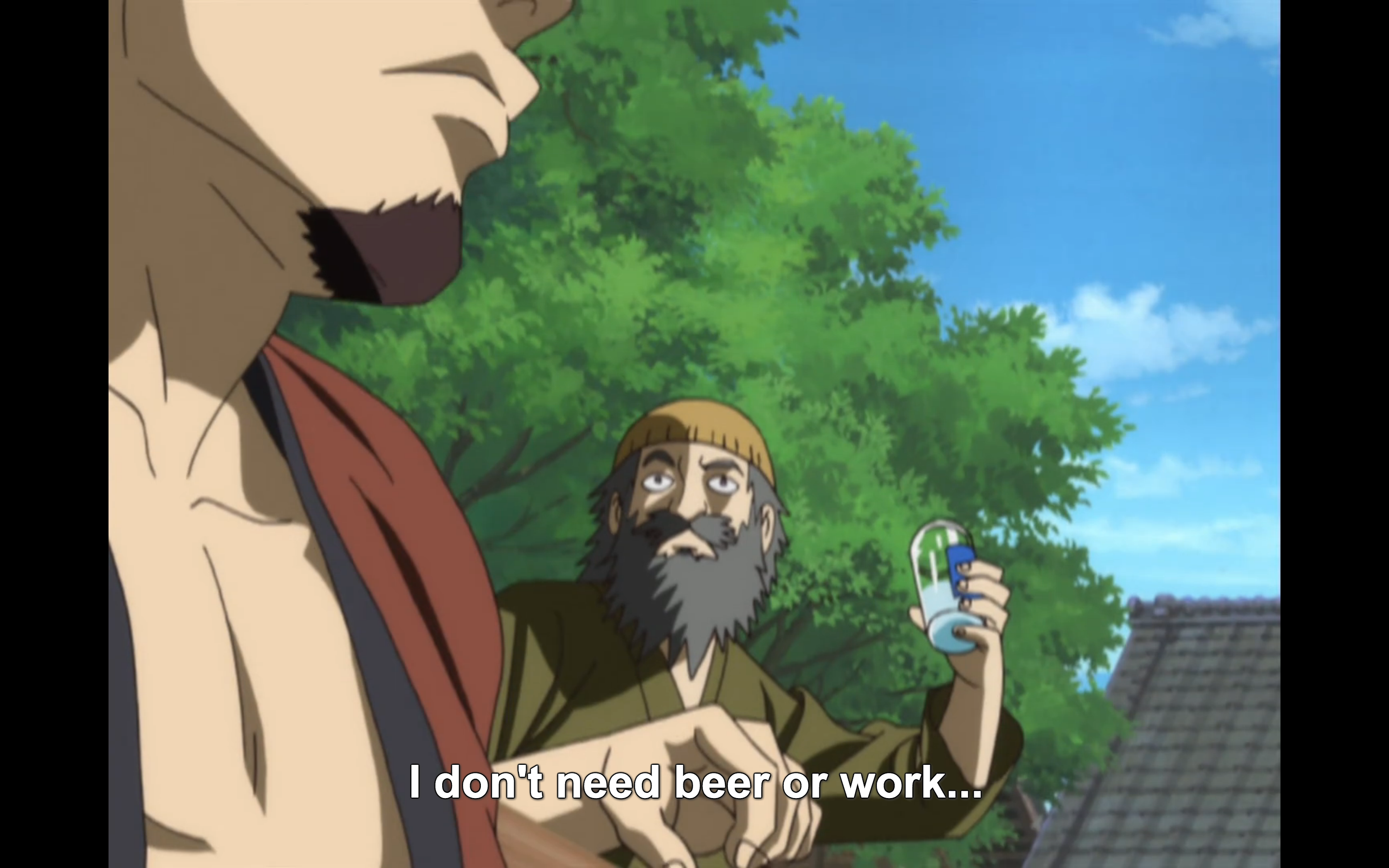
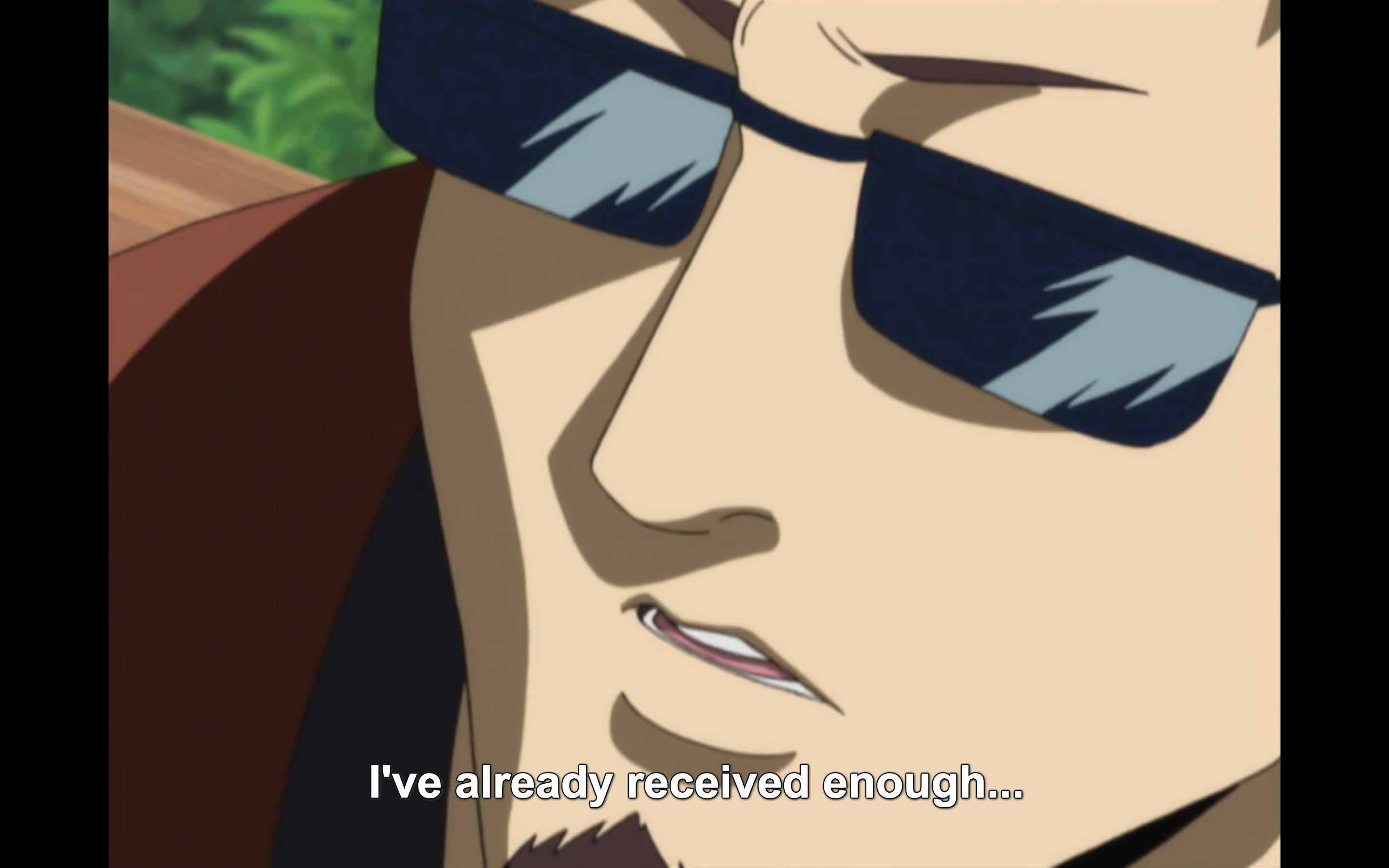
A few days after their family reunion, Daigoro sees Hasegawa on a park bench, where they first met. He gets mad at Hasegawa for purposely failing to get the job, but he understands that it needed to happen.
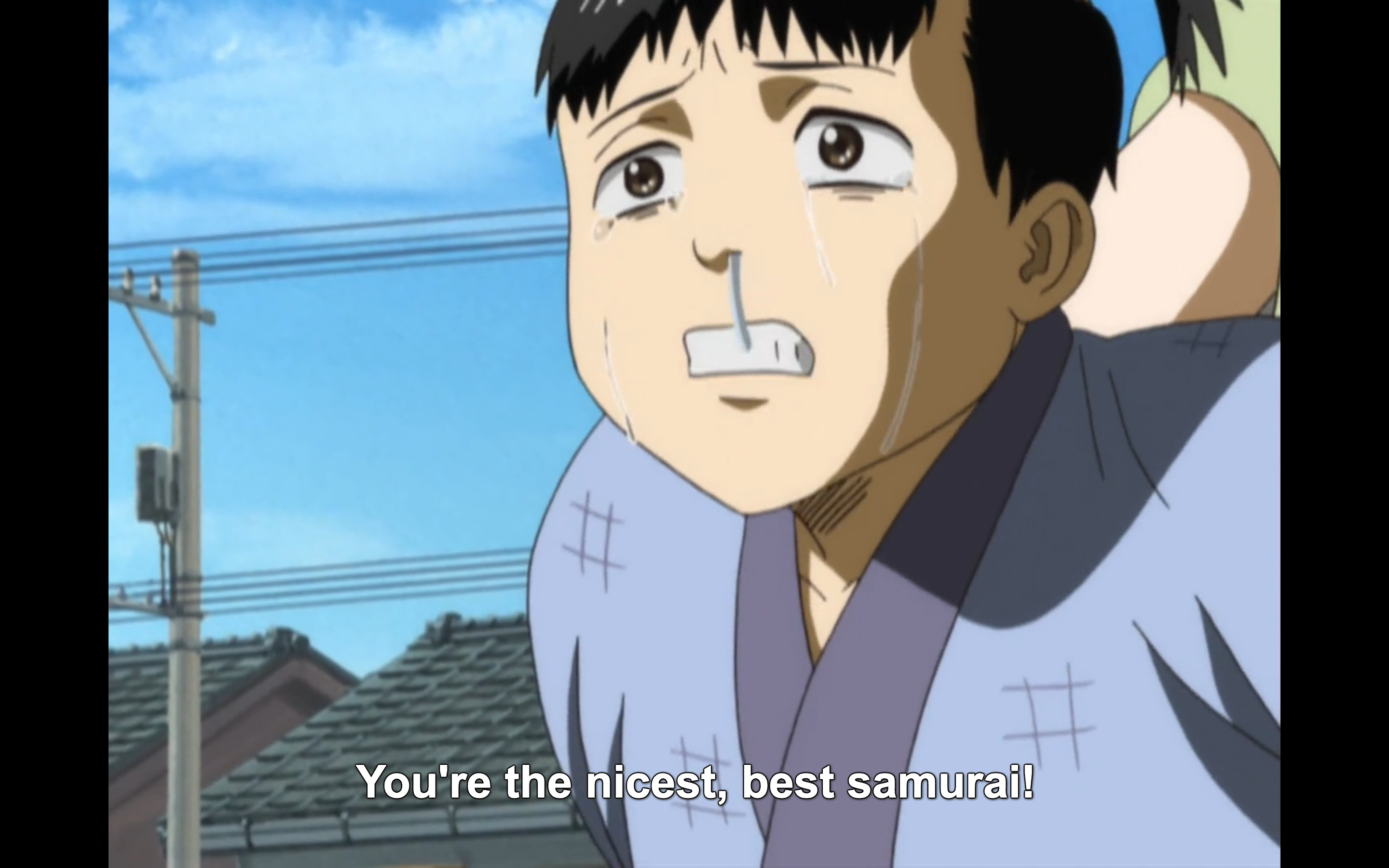
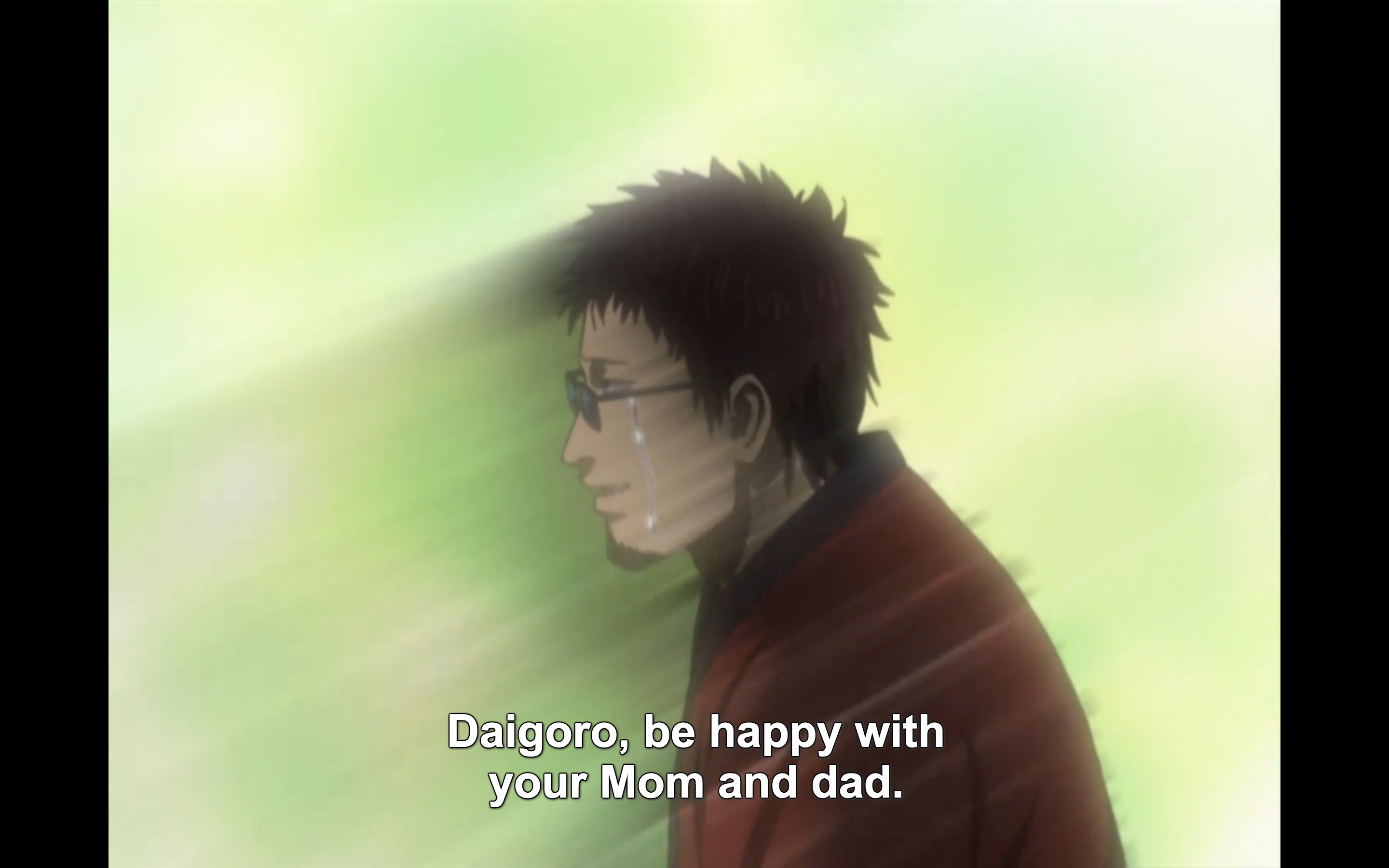
Hasegawa sacrificed an opportunity out of hopelessness and the bum life so that a family could be reunited, causing happiness and a feeling of completeness for Daigoro and his parents.
2. MADAO is an existentialist.
Existentialism says that a person determines their own development through their own free will. It is the idea of becoming a better person with our own strength, not relying on external forces.
Choosing your own path
In Nietzsche?s book Thus Spoke Zarathustra, he mentions that those who are strong enough struggle. Those who aren?t strong turn to religion, nationalism, democracy, or some other means of escape.
People should create their own values and beliefs, independent of human society?s moralities and standards.
It is time for man to set a goal for himself. It is time for man to plant the seed of his highest hope.
In episode 7, Hasegawa was working for the alien-dominated Edo government, and had to protect some alien prince?s pet octopus. But the octopus got violent and started harming Gintoki?s friends, making Gintoki fight back.
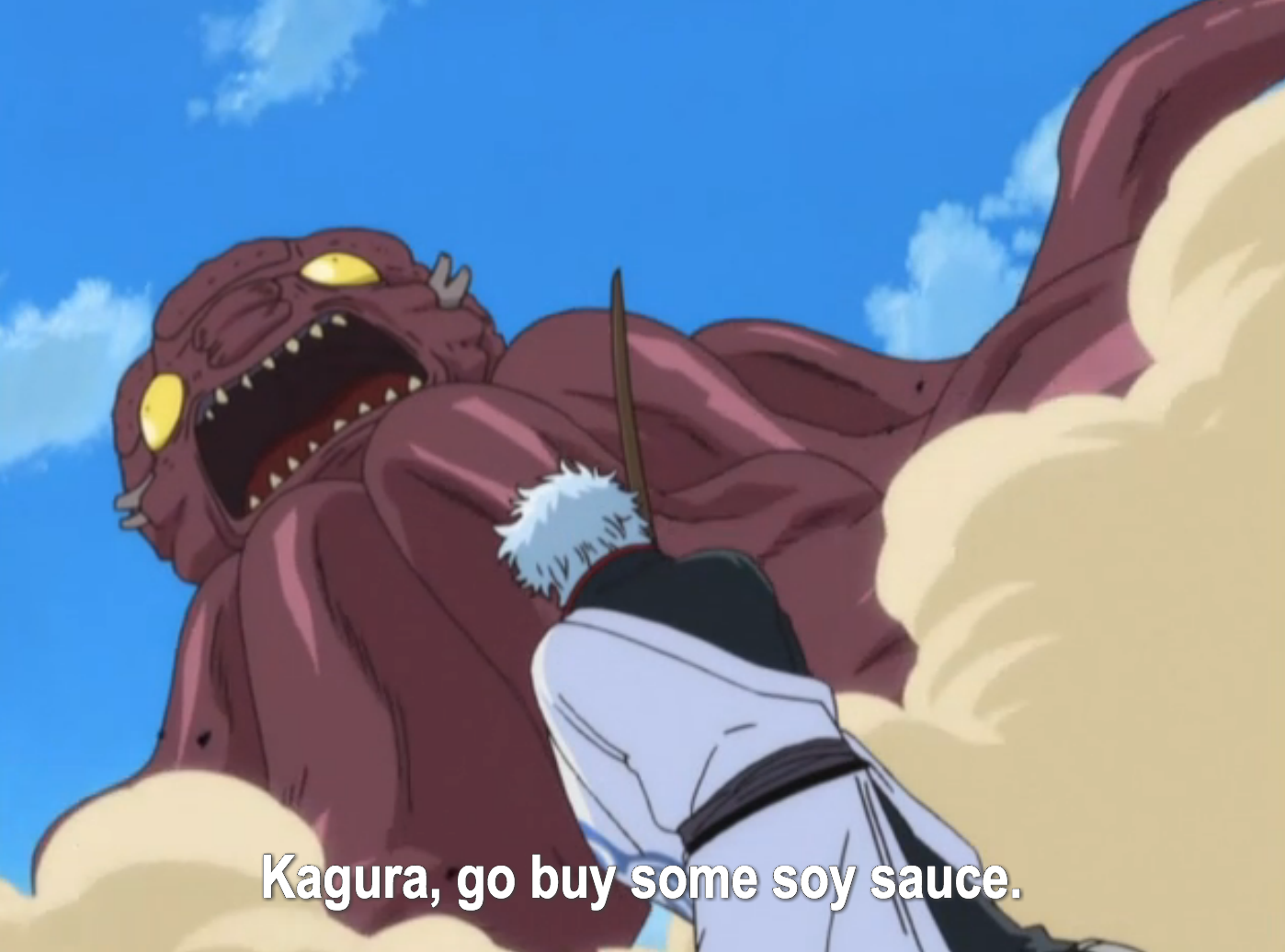
Hasegawa initially opposed Gintoki on going against the government, telling Gintoki that aliens are too powerful to oppose.
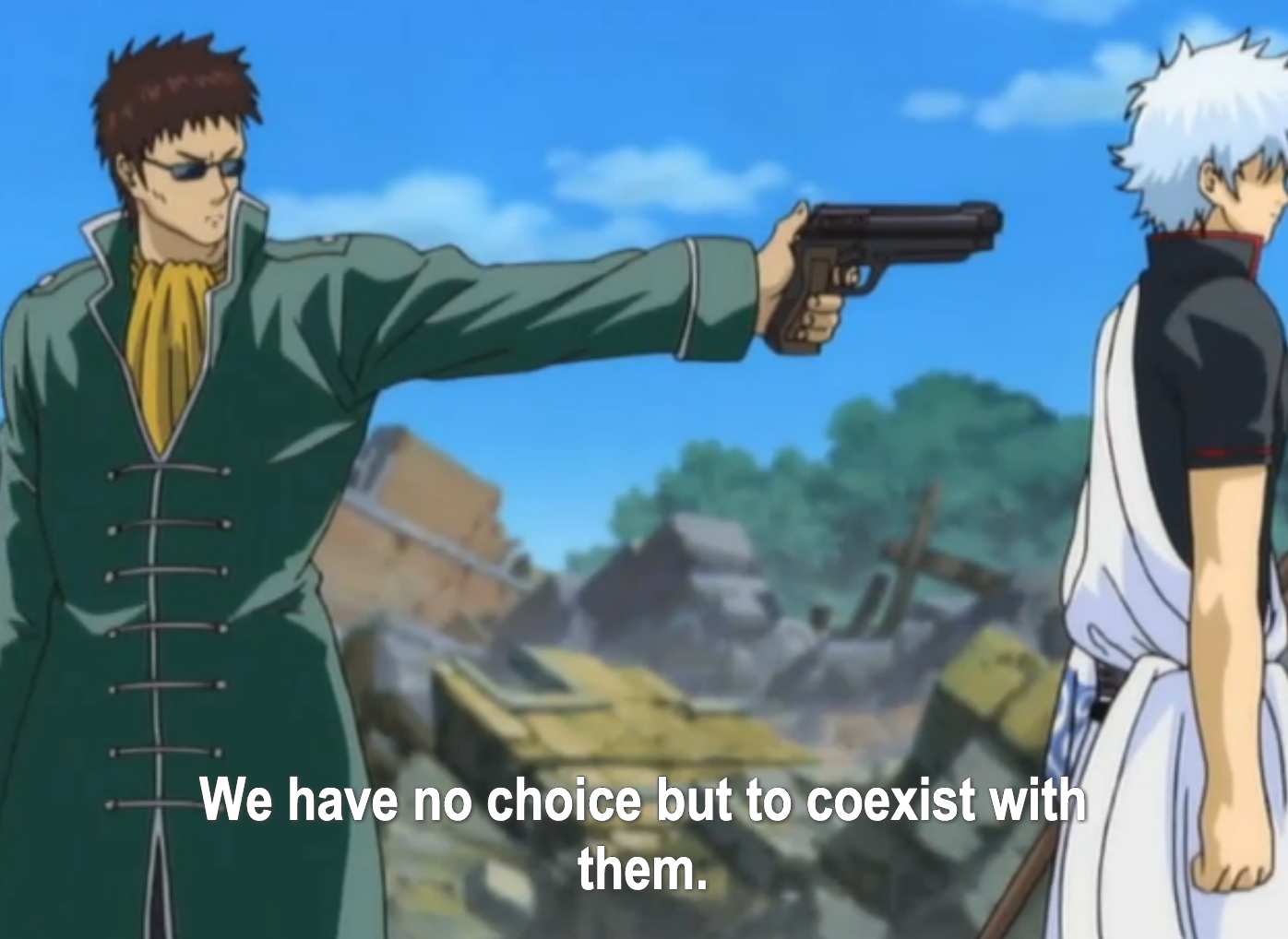
However, moved by Gintoki?s drive to protect his friends, careless of who will oppose him, Hasegawa changes his mind and lets Gintoki beat the octopus up. He then quits his government position, leaving an angry prince.
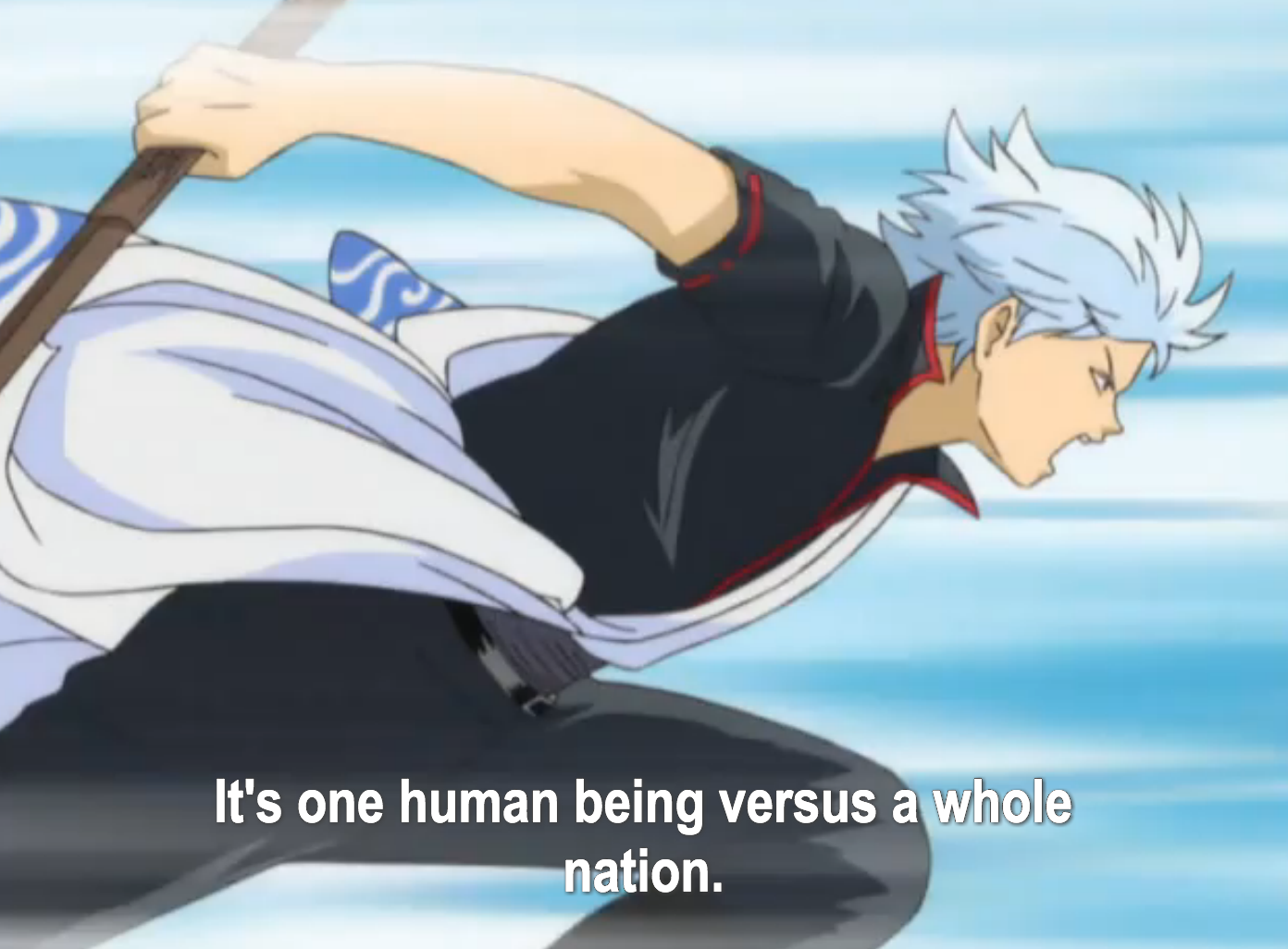
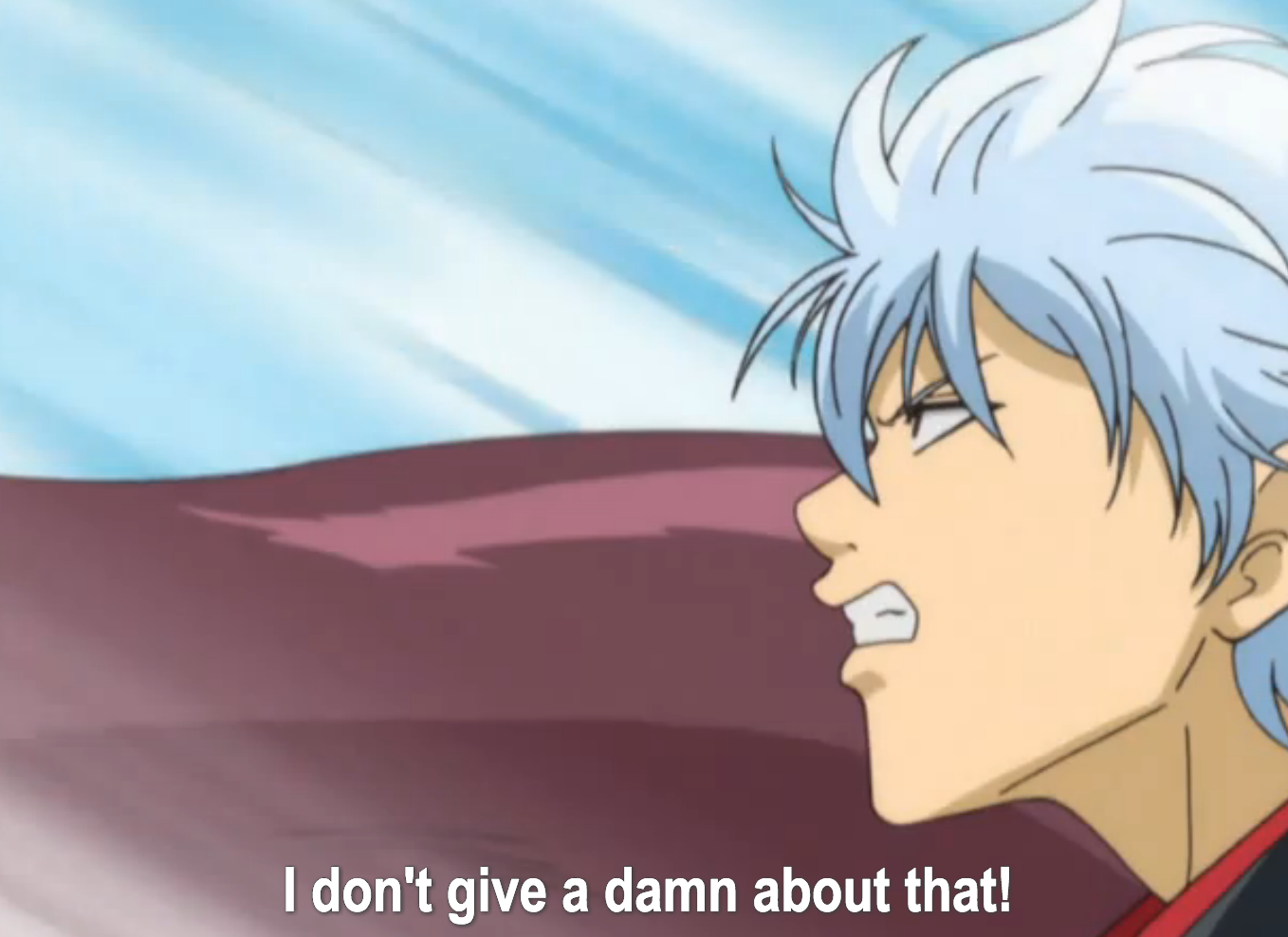
In that moment, MADAO realizes that he shouldn?t be conforming to the masses to survive, he should be following his own rules to truly live, even if it?s dangerous. Seeing Gintoki saving his friends, MADAO realized that doing the right thing comes before anything else, even before being employed.
Another example of MADAO choosing his own path is in episode 95, the same episode involving his court trial.
At first, MADAO is hopeless about attaining happiness.
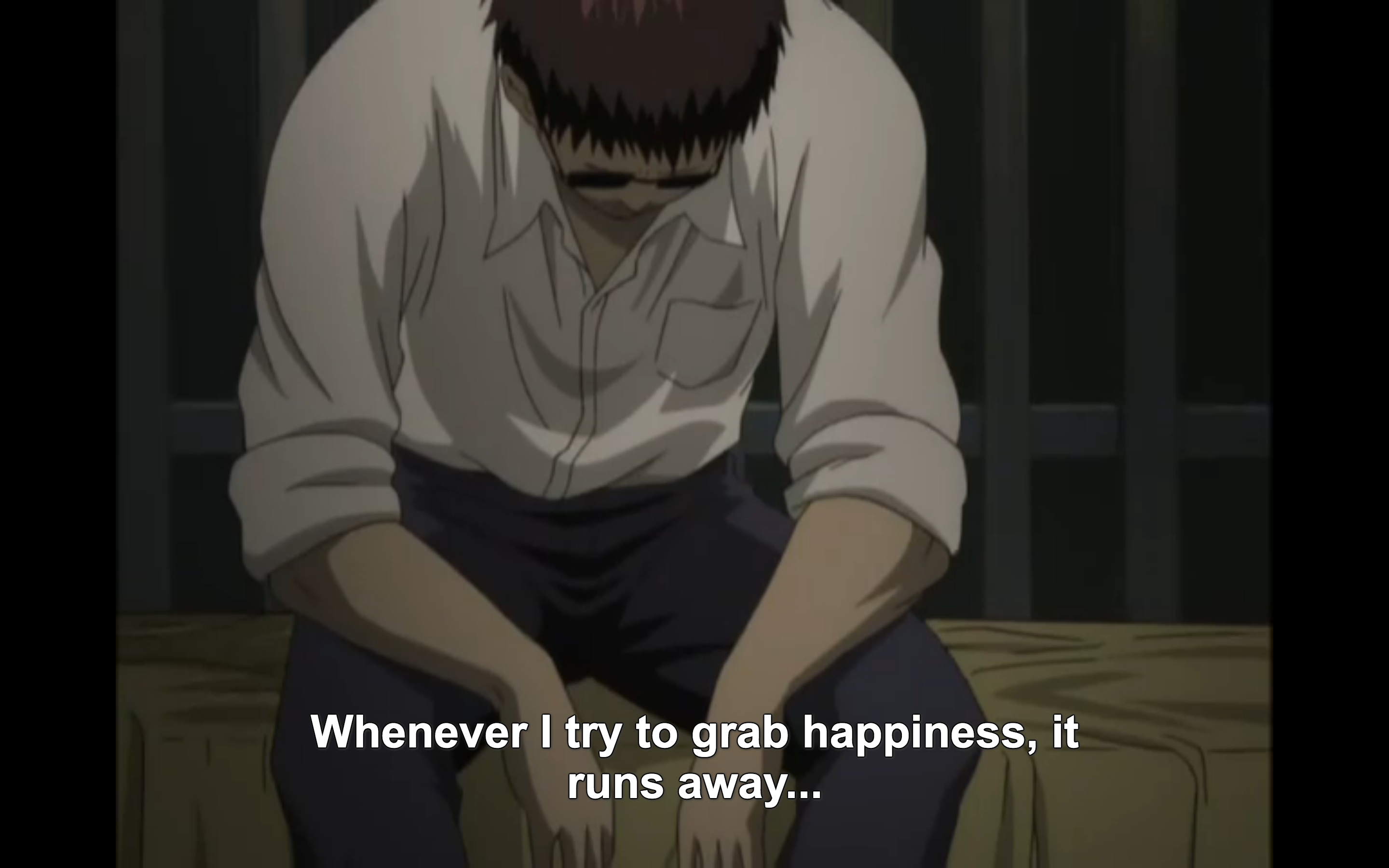
He asks Gintoki to get him a rope to hang himself with.
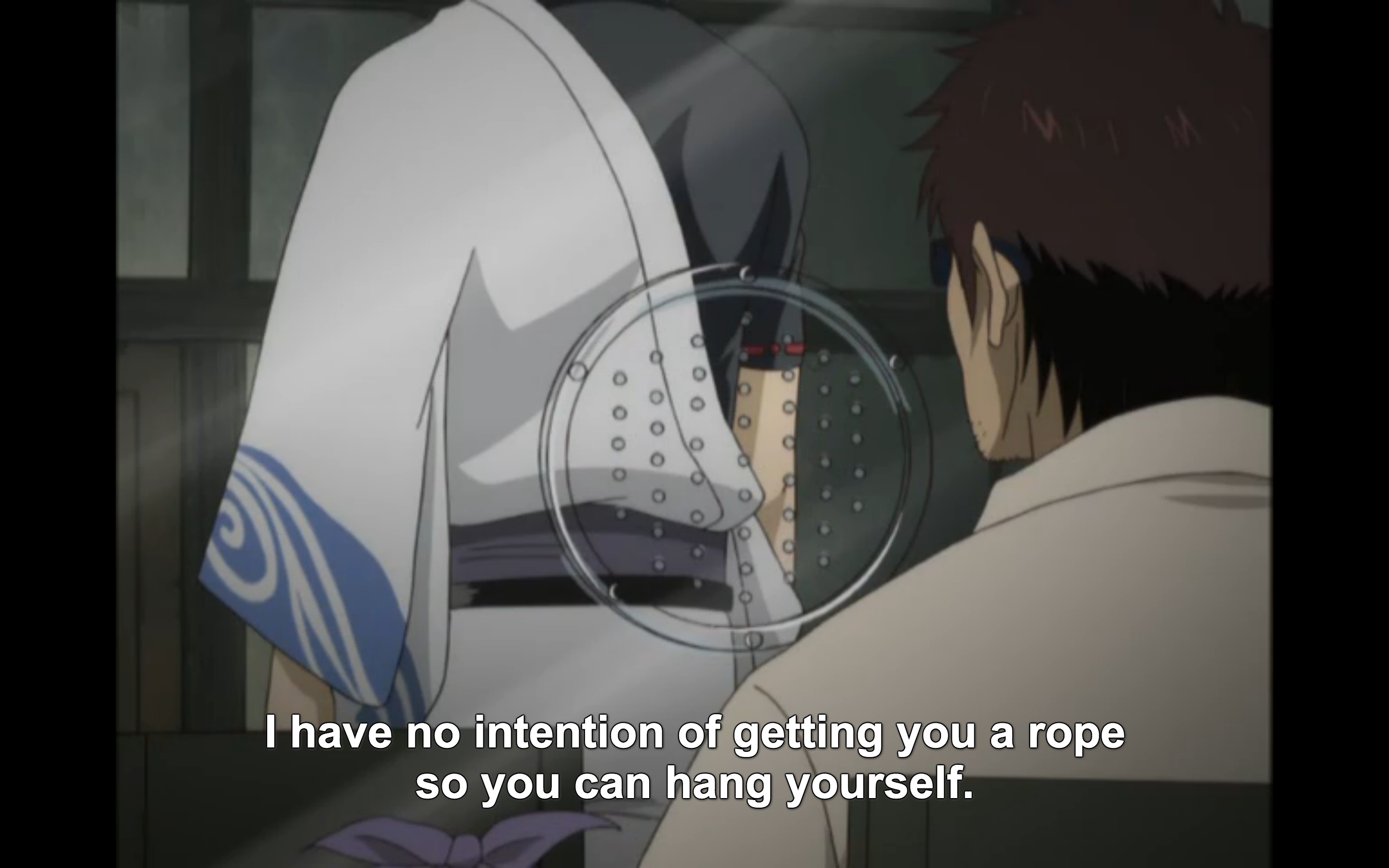
But Gintoki refuses to let MADAO suffer, and decides to save him.
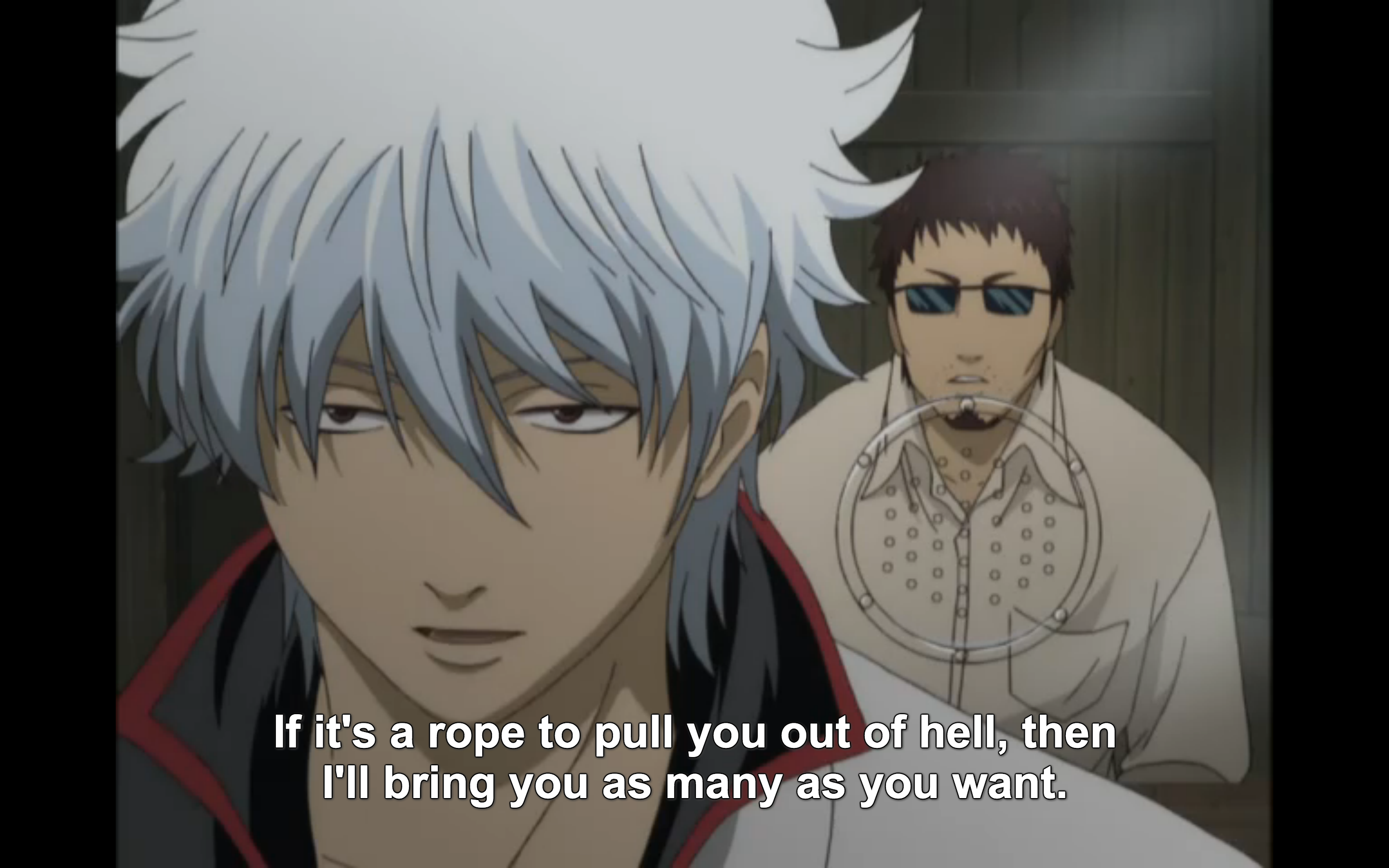
Gintoki acts as his attorney, and tells a story about MADAO?s past with his wife, how he married into a good family, and was given a high-ranking job he didn?t like. In the story, MADAO takes action to get away from that high-ranking job, not giving in to how things ?should? be. He defies his job by showing up in worn down samurai clothes instead of a fancy suit he?s been given.
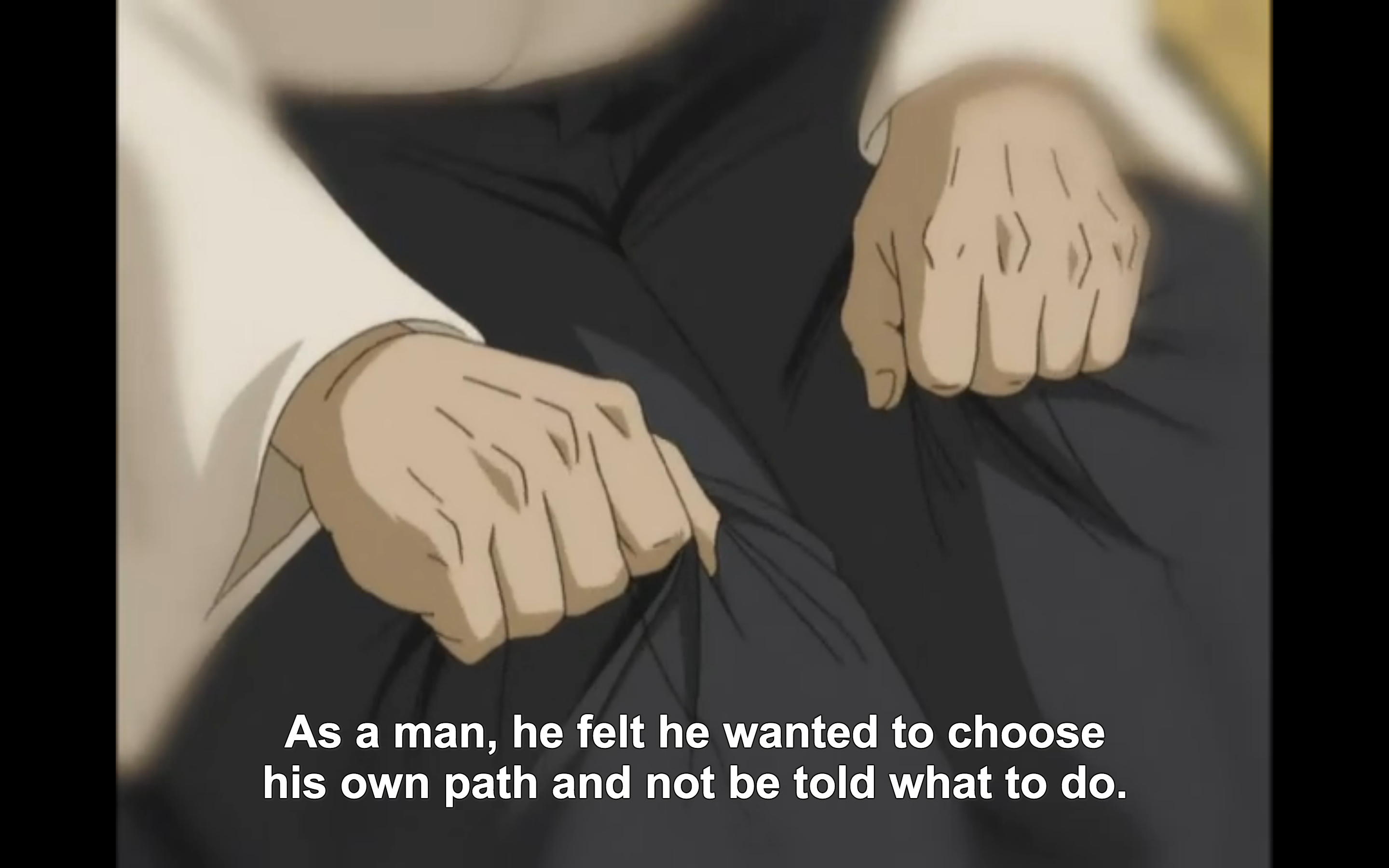
Man is something to overcome
In Thus Spoke Zarathustra, Nietzsche also talks about overcoming ourselves and striving to be better in however way we define what being ?better? means.
Man is something that must be overcome: and therefore shall you love your virtues, ? for you will perish by them.
In episode 16, Hasegawa is unemployed. Believing that he is fated to be miserable his whole life, he starts looking for a job anyway. It is evident that he desires to rise above his current situation, even though following his desire will cause suffering.
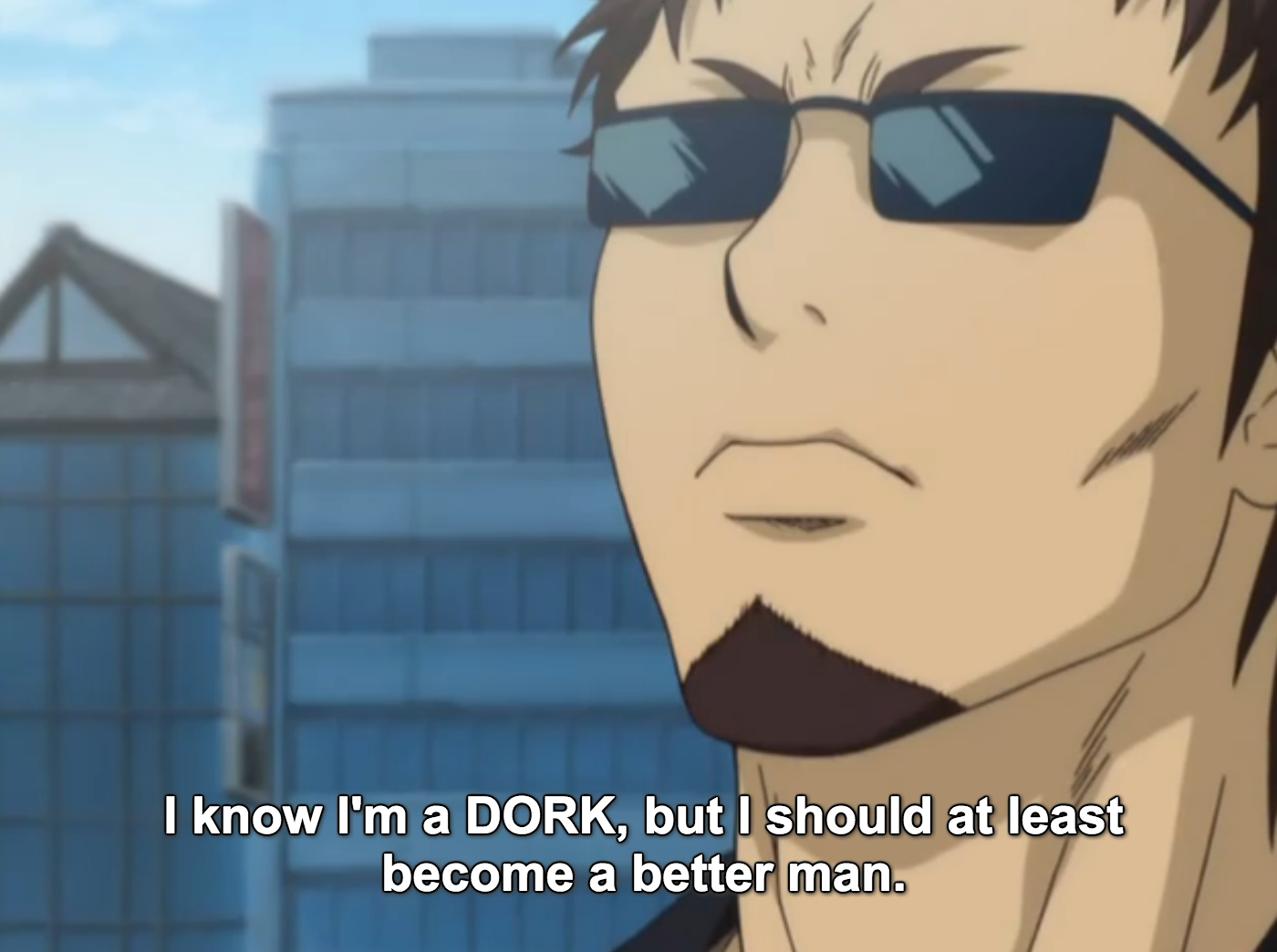
Eventually, Hasegawa takes a job as a cab driver at the cost of his sunglasses, which he considers a crucial part of his identity.
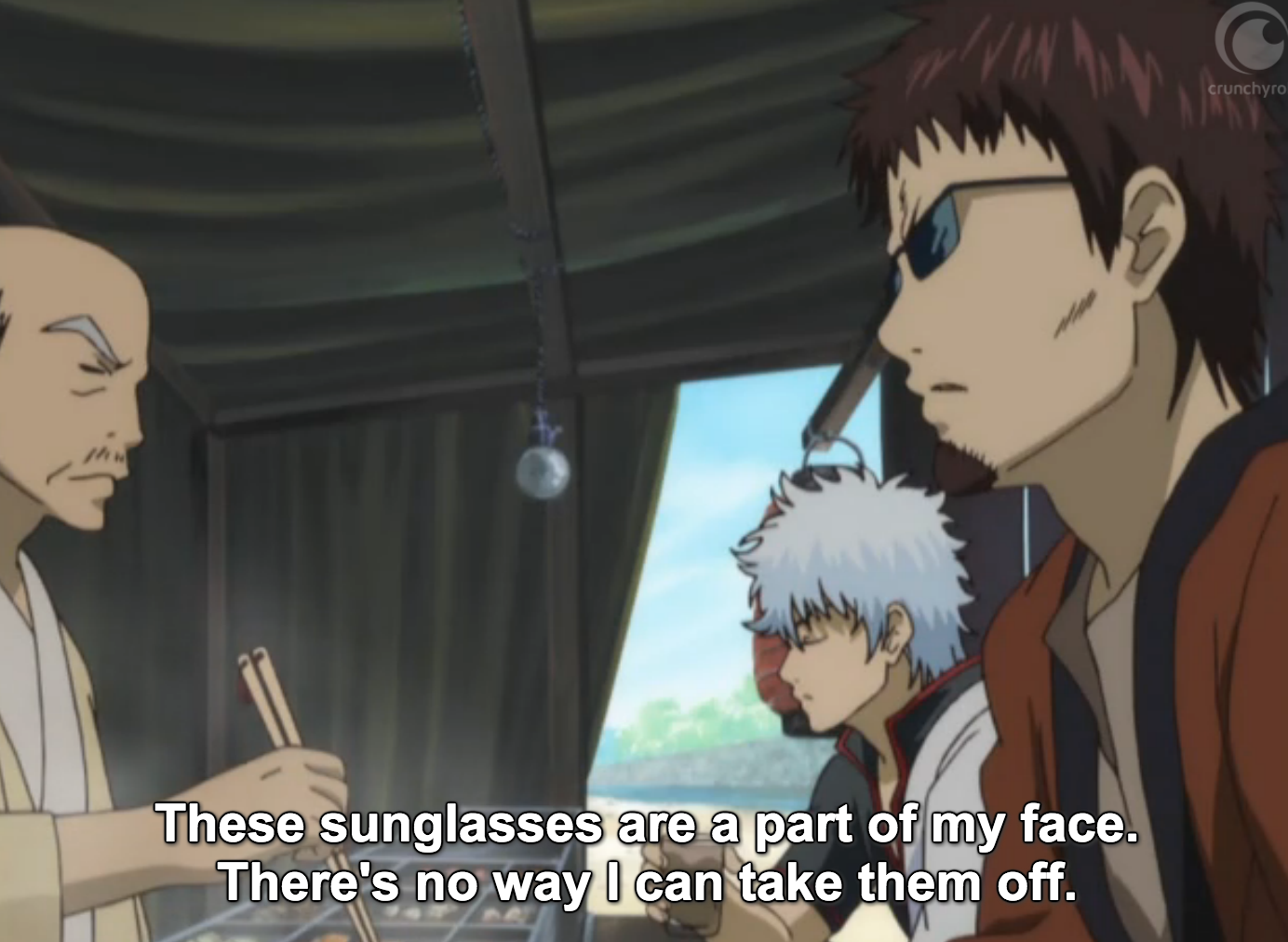
On the job, driving an alien prince, he comes across a pregnant woman giving birth. The alien prince tells Hasegawa to keep going, neglecting the couple. Hasegawa becomes angered by the lack of sympathy, and punches the alien prince in the face, quitting his job in the process. He is found in the park sitting on a bench beside Kagura, who asks why he quit his job. Hasegawa responds:
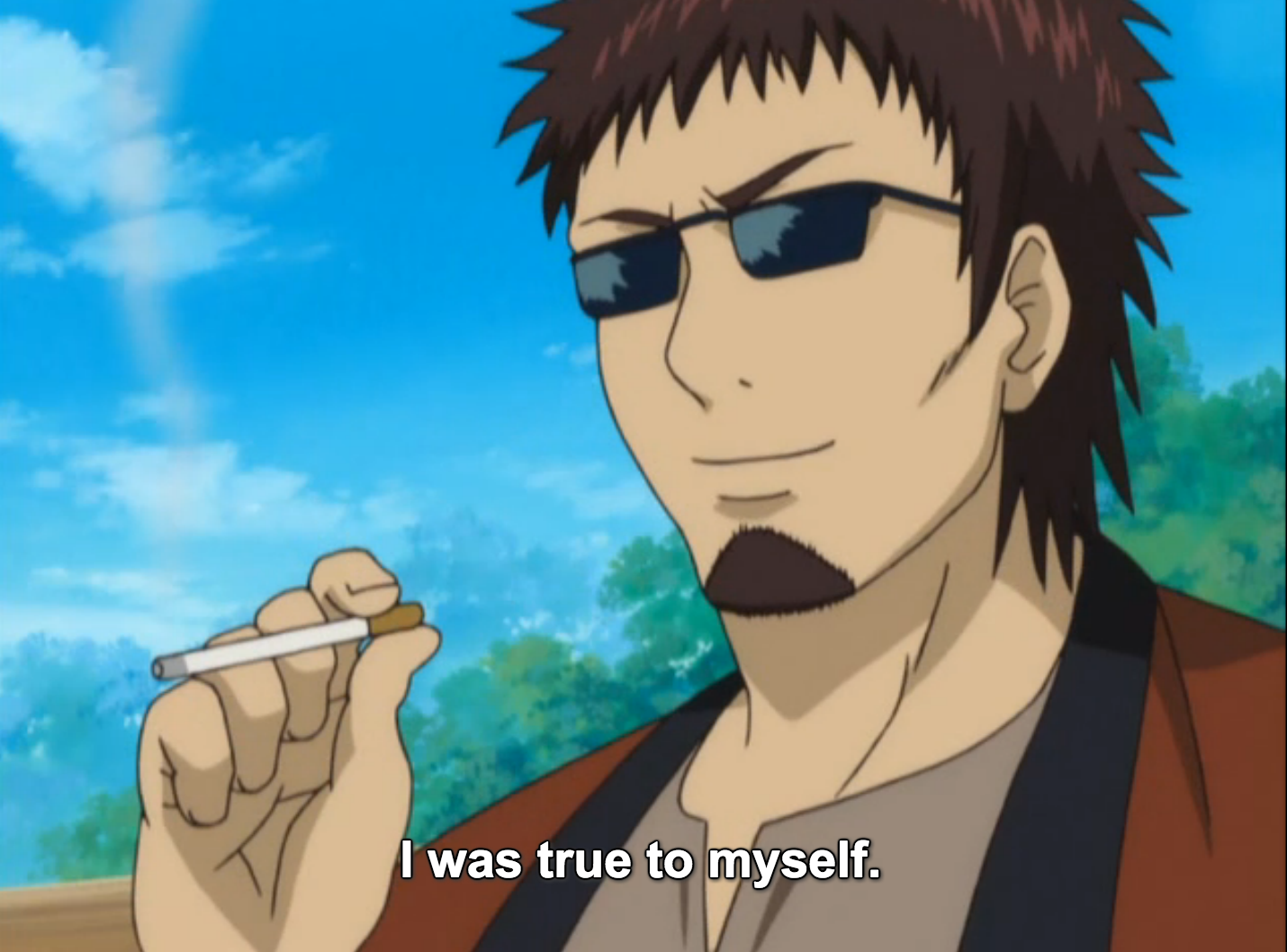 Kagura asks why MADAO quit his job.
Kagura asks why MADAO quit his job.
To Hasegawa, expressing your values and beliefs come before your job. Thus, he is unemployed yet once again.
I love him who seeks to create beyond himself, and thus succumbs.
Existence precedes essence
Hasegawa has attempted to commit suicide various times in the anime, but fails every time.
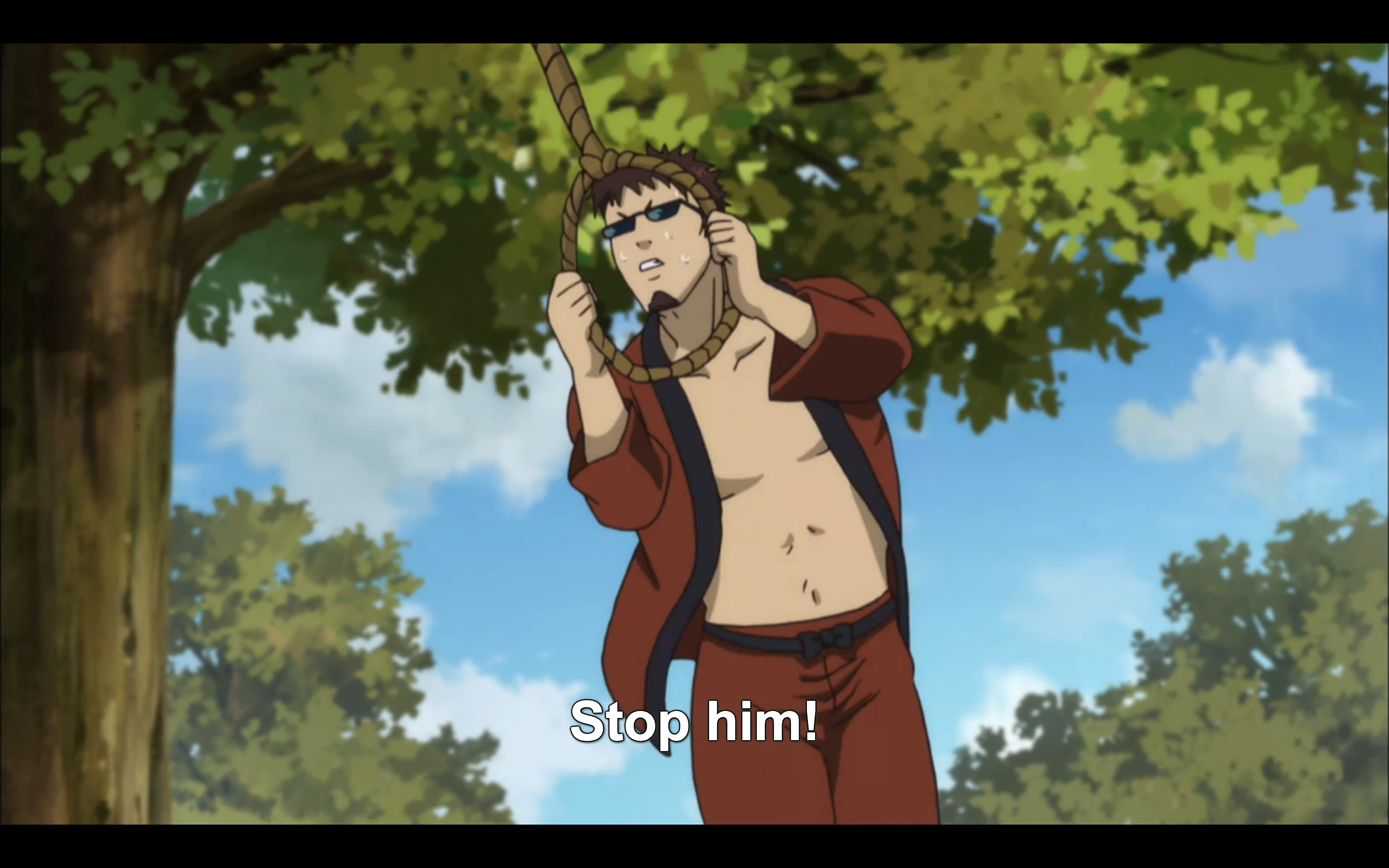
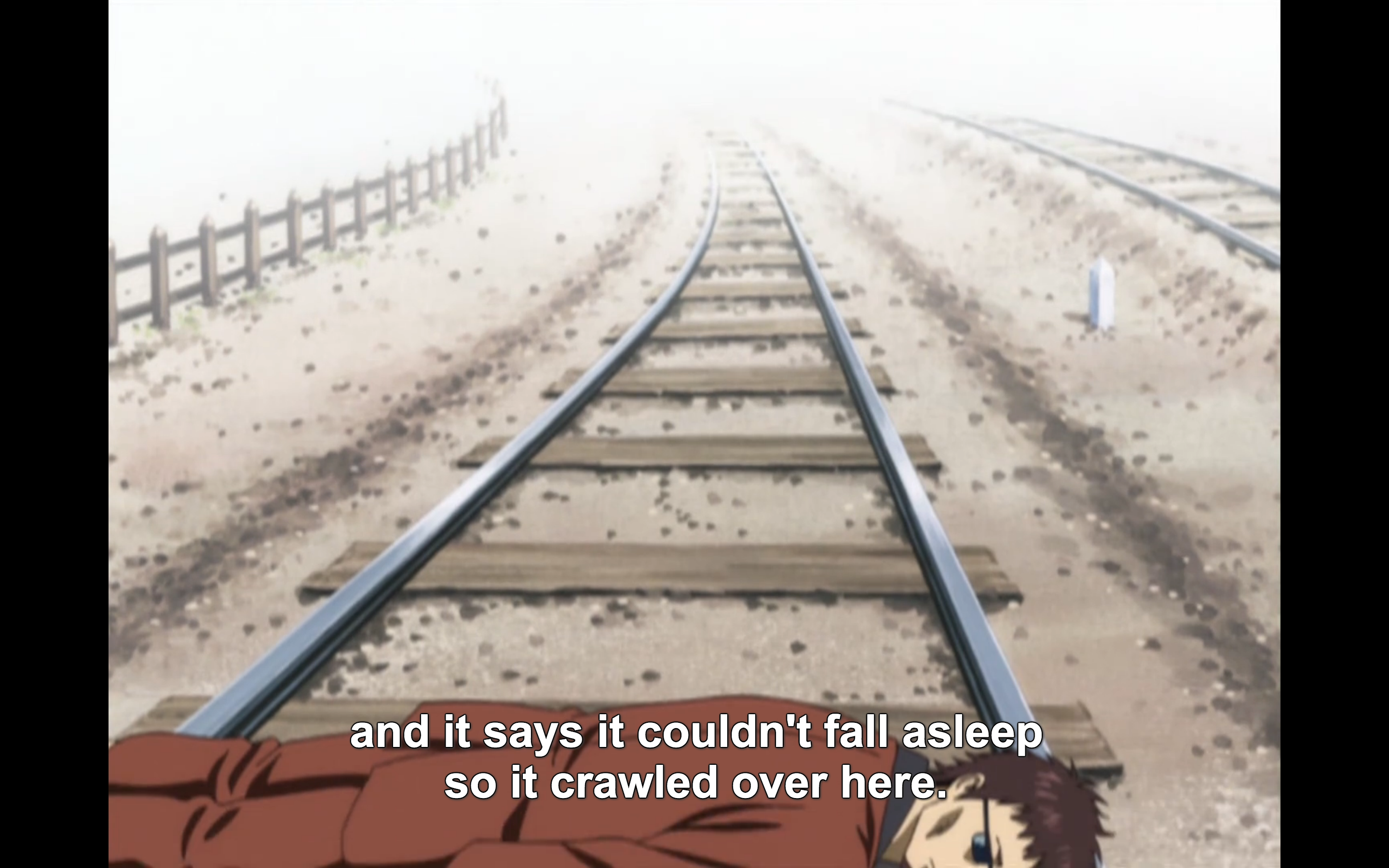
If he is so miserable, why doesn?t he just end his life?
This is because of the existentialist notion ?existence precedes essence?, coined by Jean-Paul Sartre (How to pronounce ?Sartre?).
To explain ?existence precedes essence?, he talks about the opposite, ?essence precedes existence?.
He uses the example of an artisan making a letter opener. An artisan first needs to find a reason to create that letter opener before creating it (which is to open letters). So before the letter opener even exists, its essence is already determined. If God exists, then God would be the artisan and humans would be his creation. That implies that our essence, our purpose, is predetermined by God and that humans would have no free will to define themselves. It implies that we can?t change the essence that God gave us. Therefore, to Sartre, the existence of God would imply that essence precedes existence.
So then, belief in a God doesn?t make sense to Sartre. Sartre believes that we first exist, and then we have unbounded freedom to create ourselves and give meaning to our own existence.
From Sartre?s lecture Existentialism is a Humanism:
He will not be anything until later, and then he will be what he makes of himself. Thus, there is no human nature, because there is no God to have a conception of it. Man simply is.
Having reasons to exist, to live, will drive us to do certain things in life, despite our suffering.
In Nietzsche?s book Twilight of the Idols, he states:
If we have our own why in life, we shall get along with almost any how.
That quote is also put in another way in Viktor Frankl?s Man?s Search For Meaning:
He who has a why to live can bear almost any how.
Okay, okay. That?s a lot of philosophy. How does it all relate to Hasegawa?
Hasegawa experiences a lot of misfortune throughout the anime.
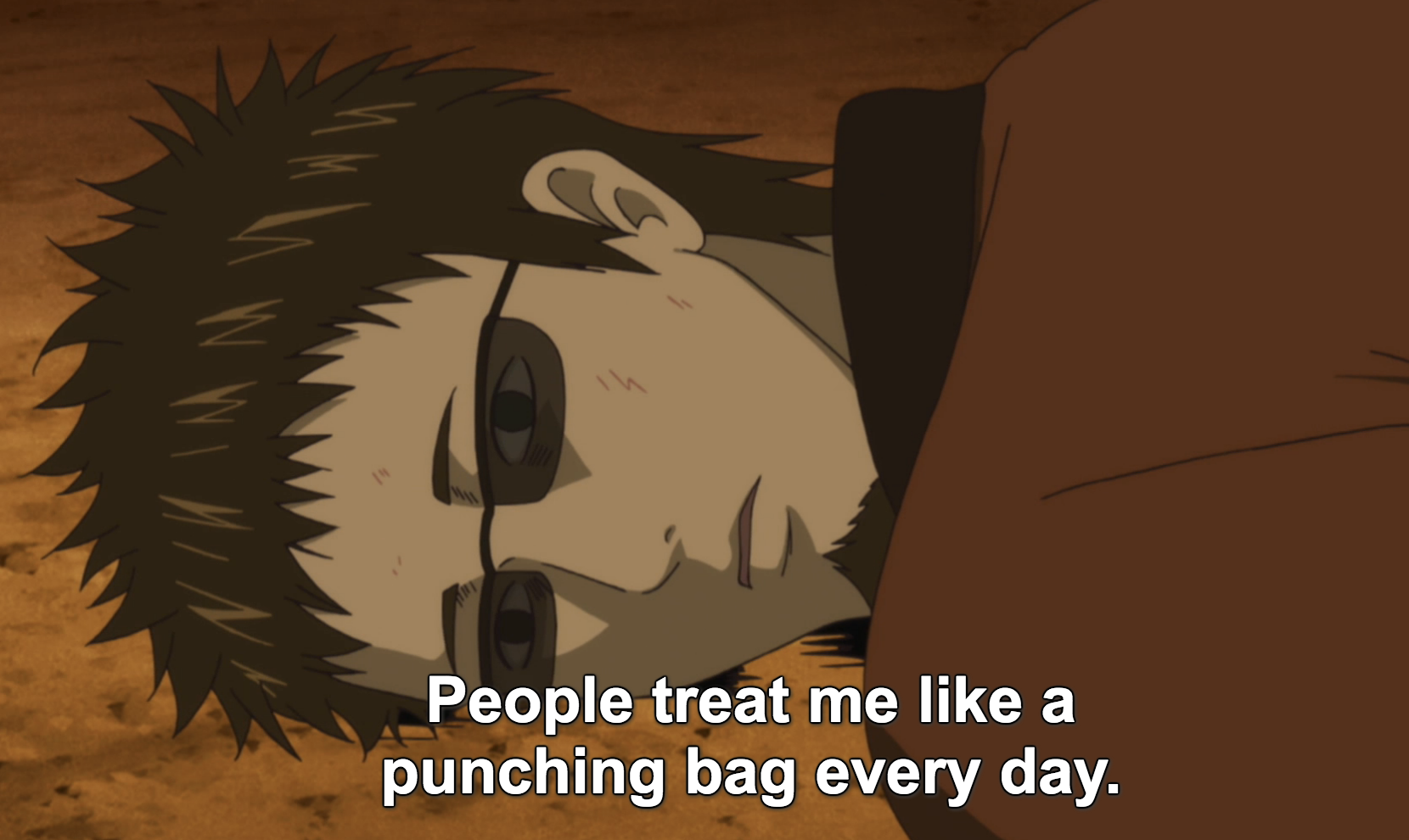
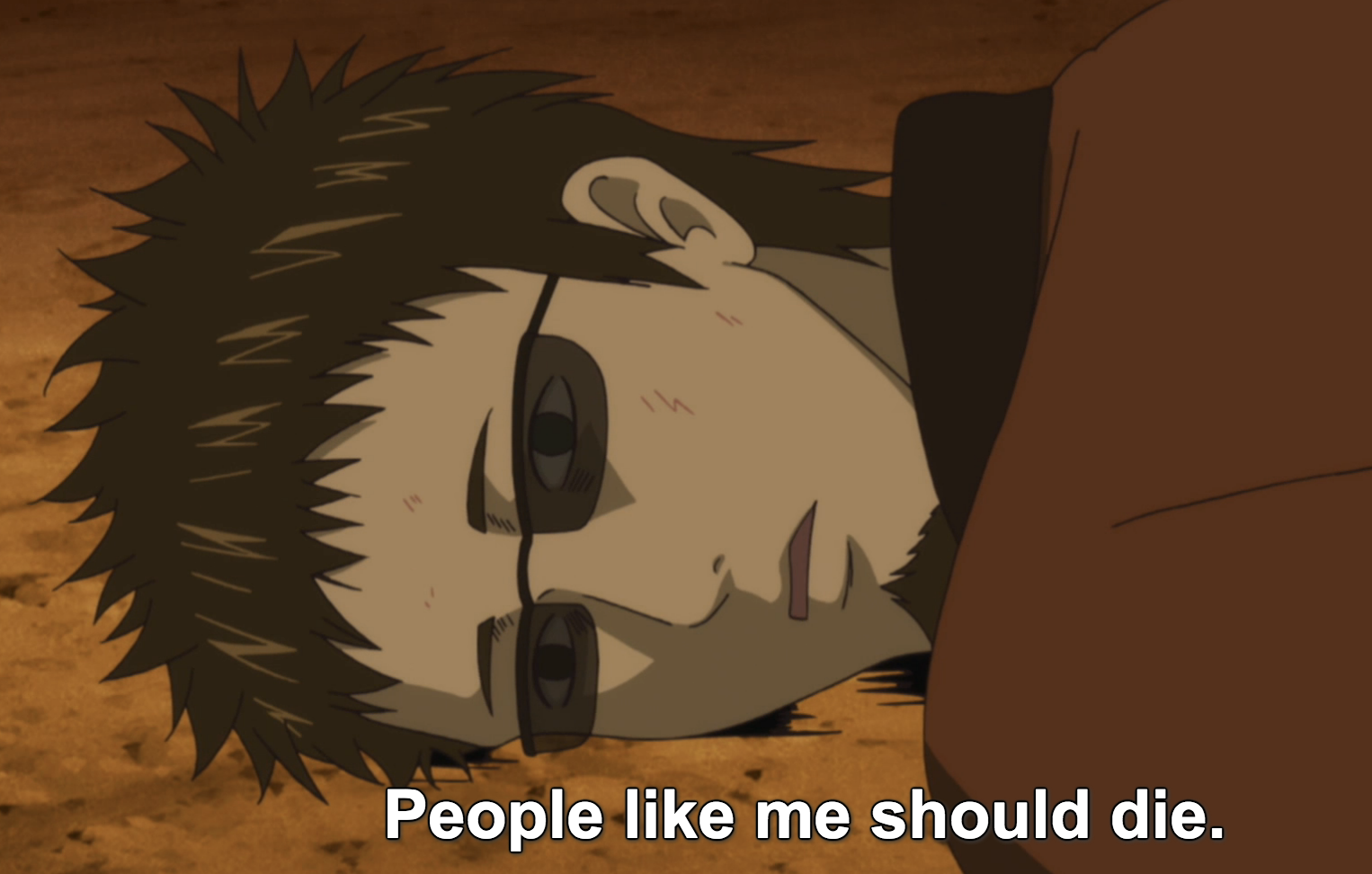
But what keeps him from suicide is his reason to live, his essence. His ?essence? is a potential future with his separated wife, Hatsu.
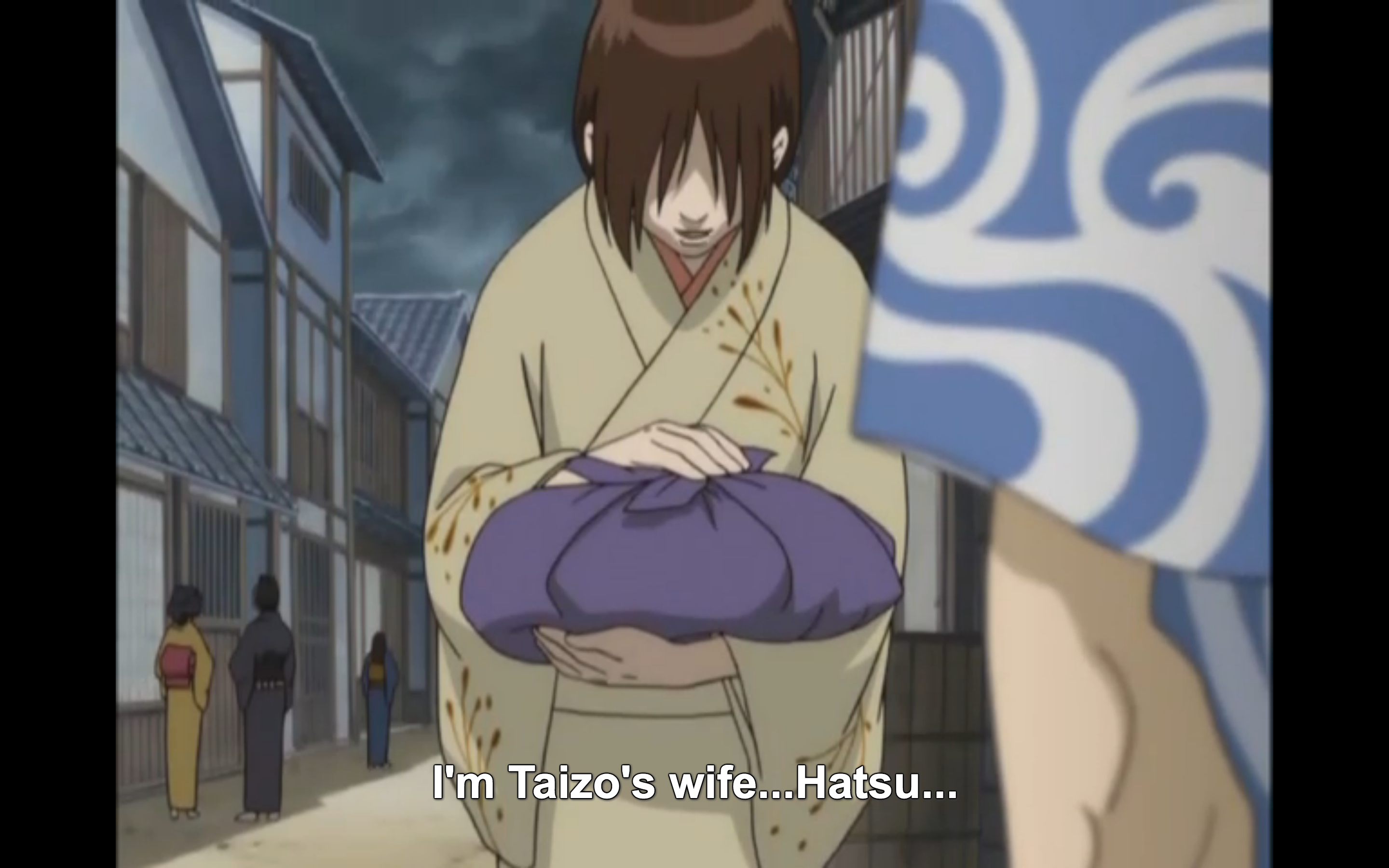
In episode 155, Hasegawa and Gintoki bet on horse racing hoping to make a fortune. Hasegawa and Gintoki keep losing due to the bets but they don?t give up.
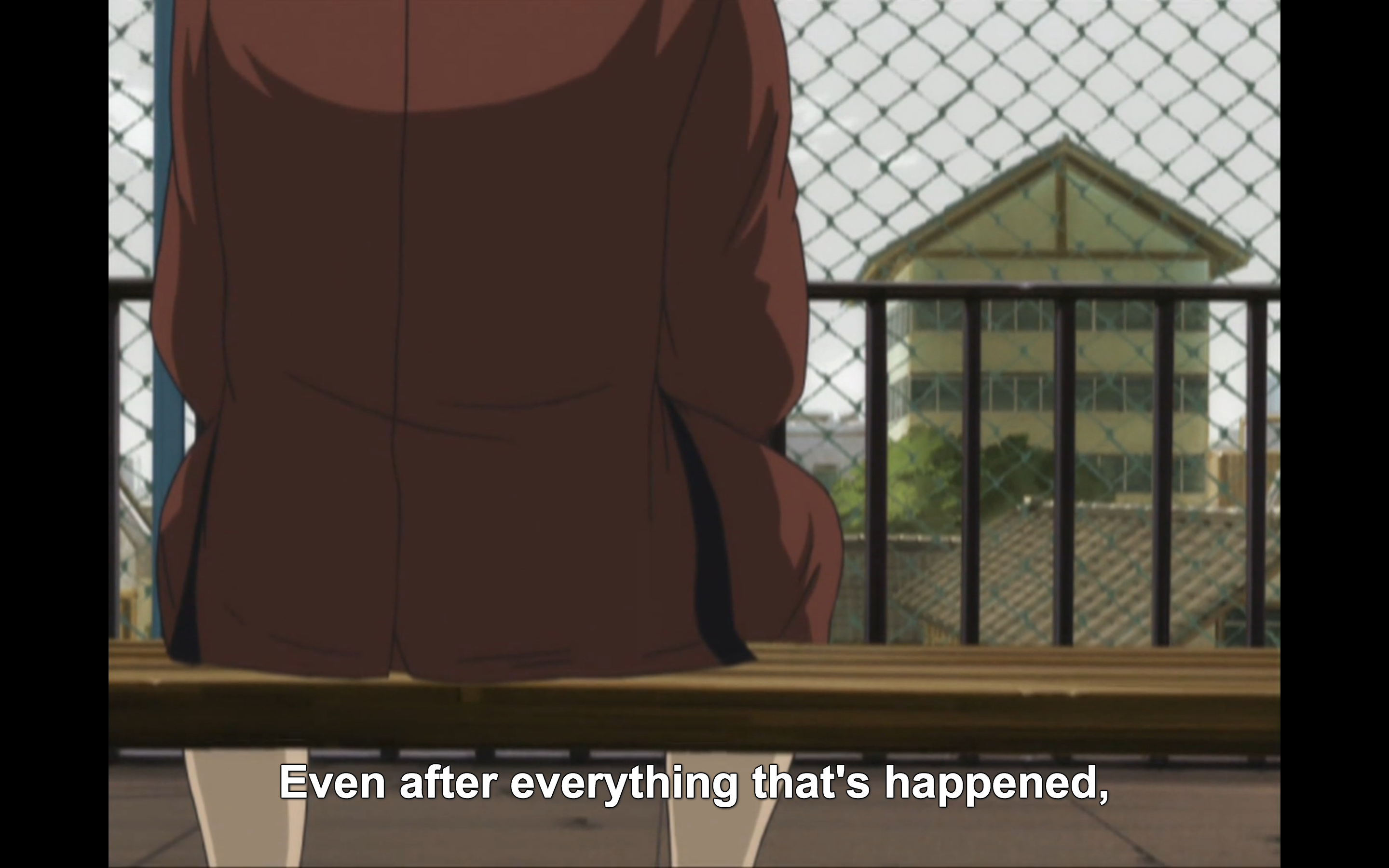
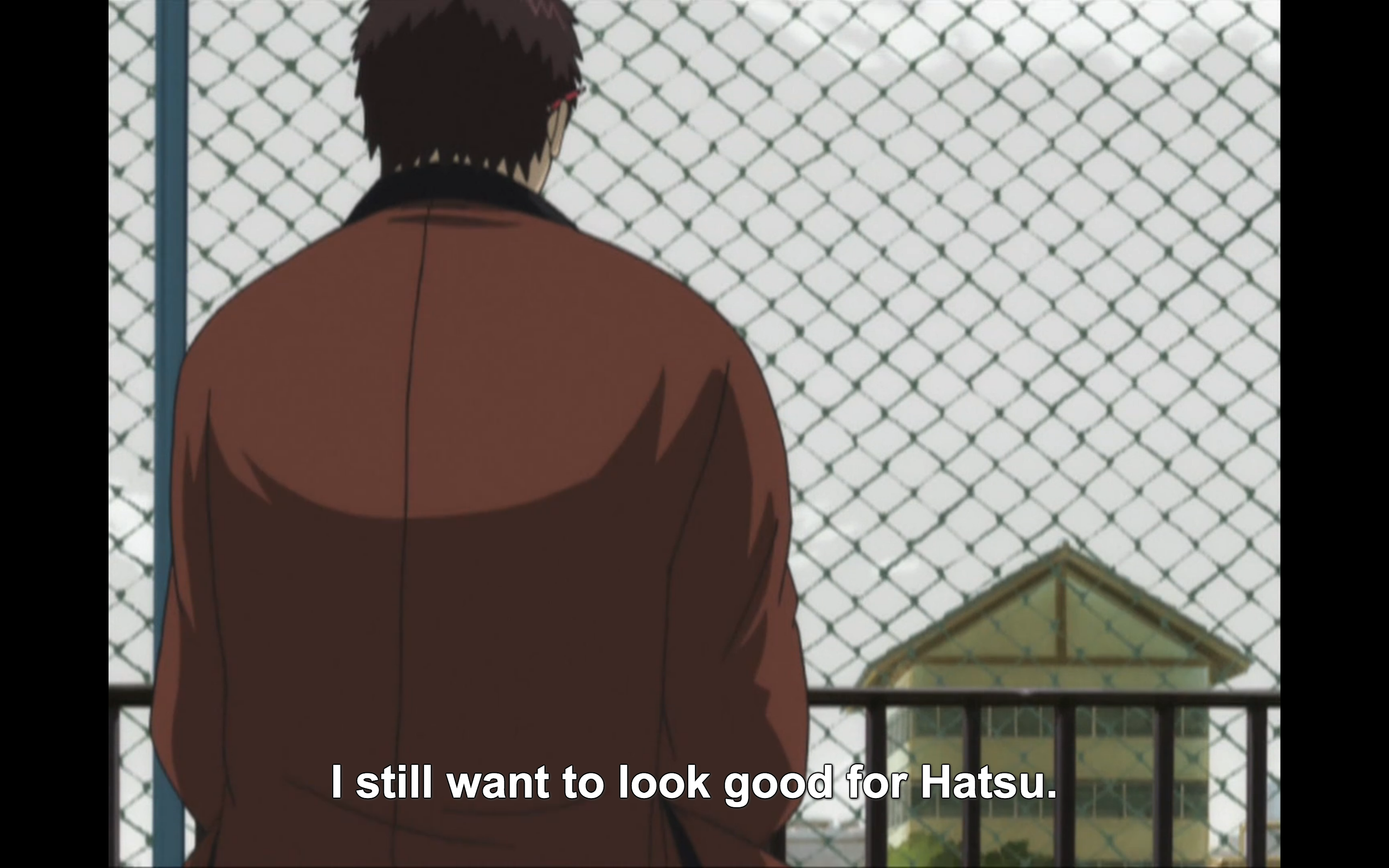
Even after Hasegawa is left with only his underwear, his determination stays sharp, all because of Hatsu.
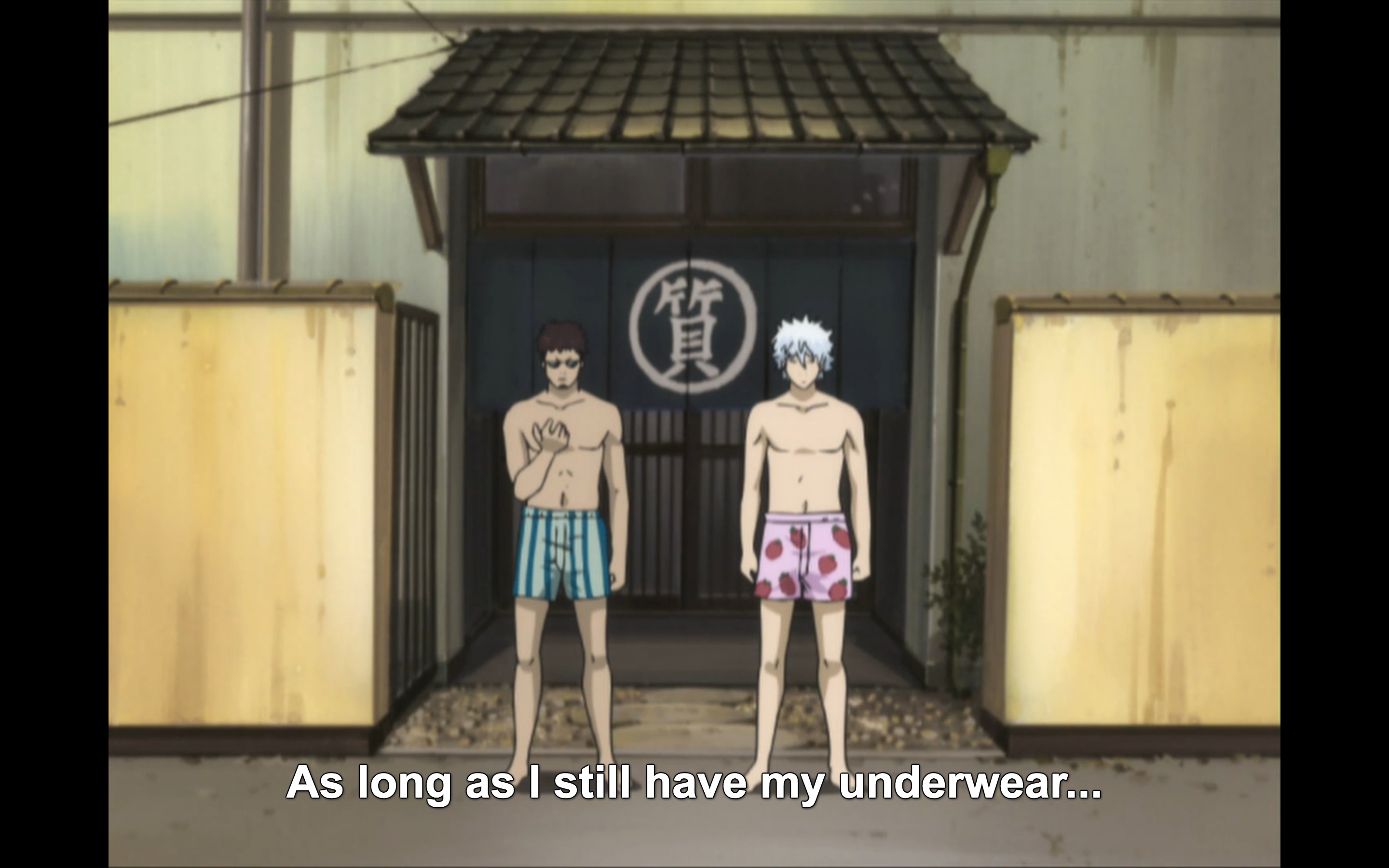
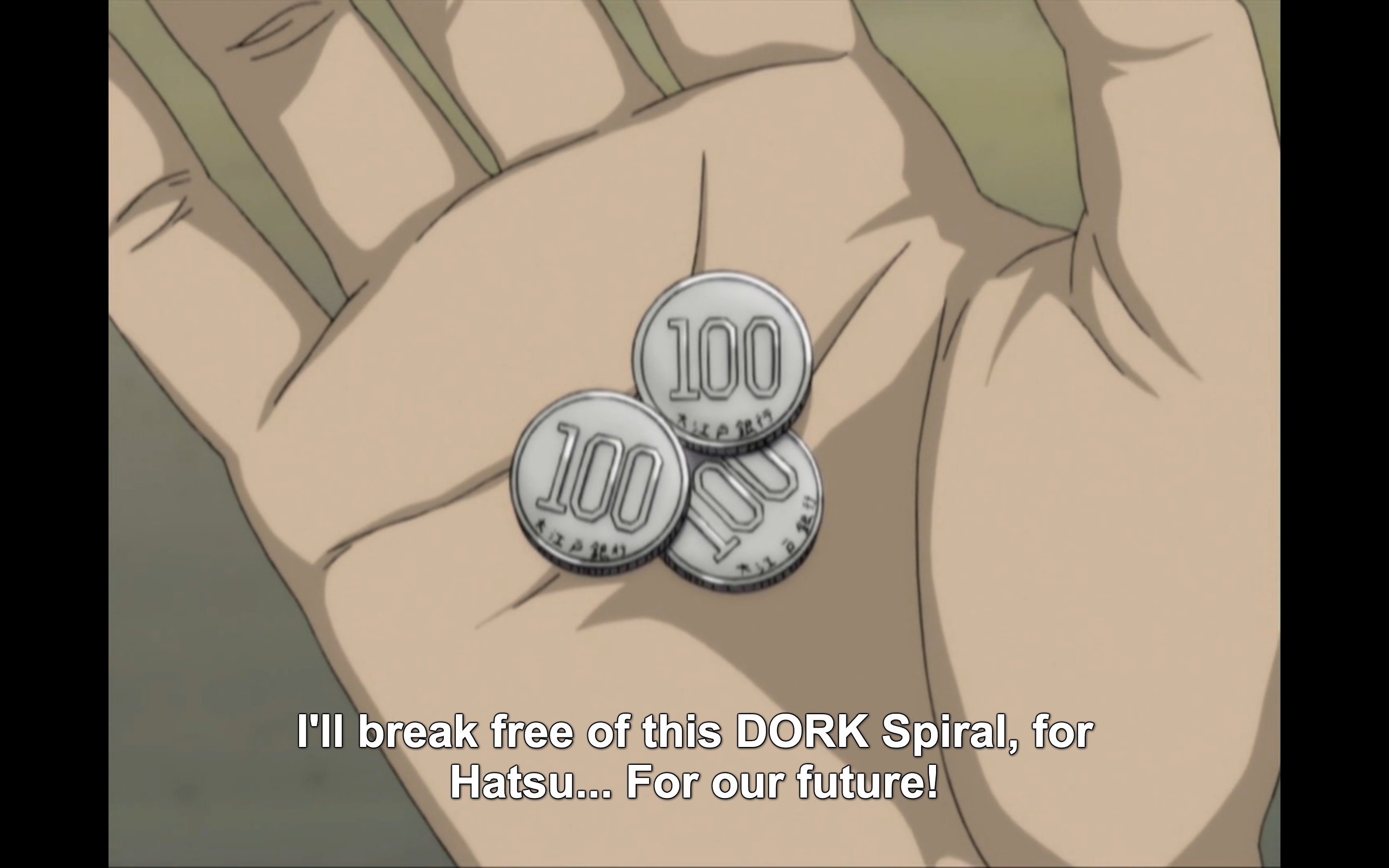
Thus, despite all that suffering, Hasegawa fights to be a better man and strives to break free from being a MADAO so that he can have a happy future with his wife, Hatsu.
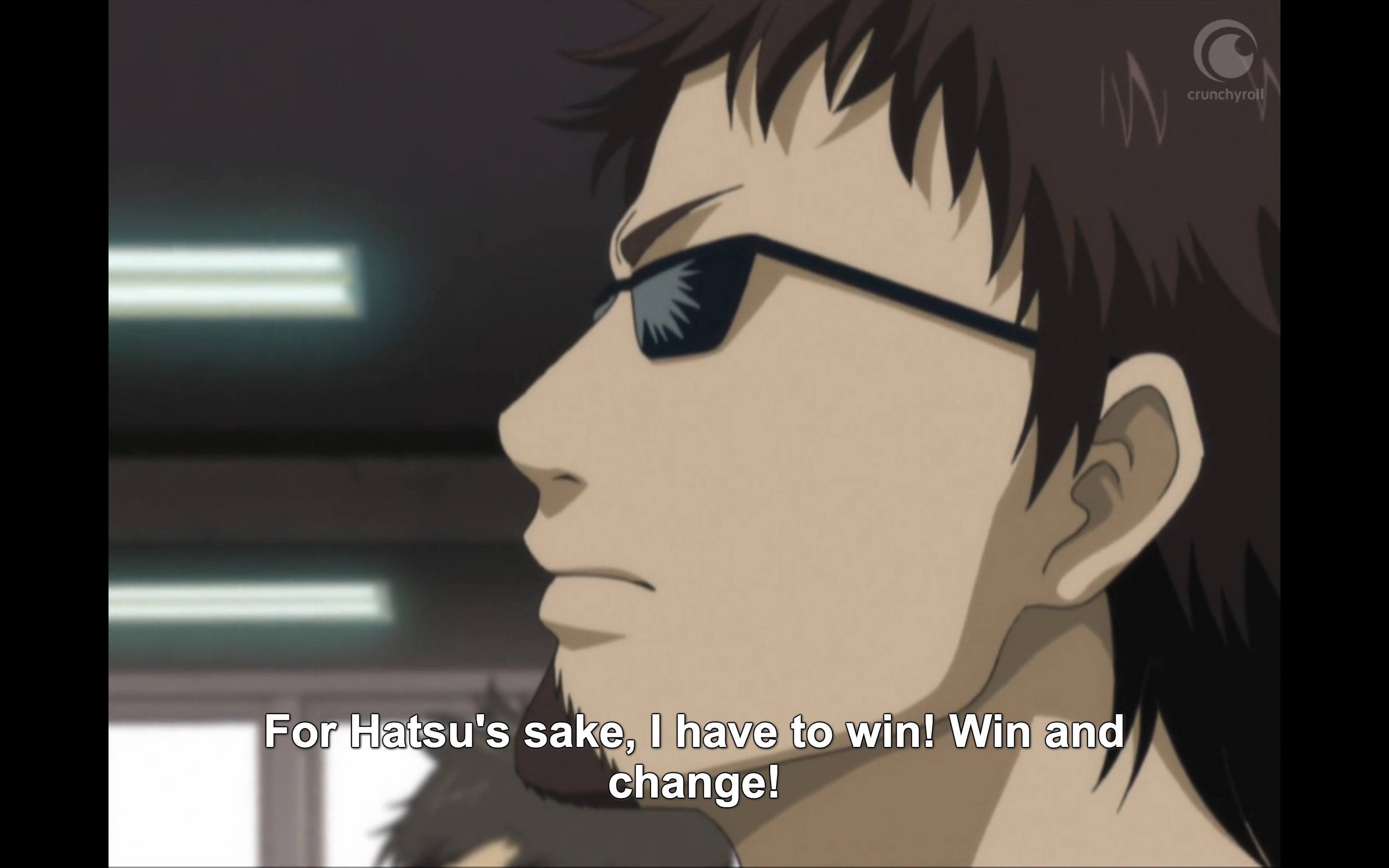
Conclusion
MADAO inspires us to overcome our situations, to do whatever we can to succeed. MADAO also teaches us that we can live minimally, that there are some things we can live without, but others might truly need.
I hope that this article has either enlightened you or entertained you. Thanks for reading. 🙂
Please check out my Gintama blog, where I upload screenshots of moments from Gintama.
https://gintamascreenshots.tumblr.com/

